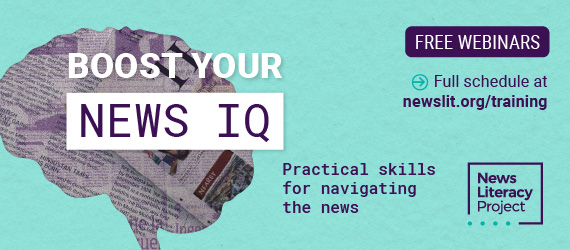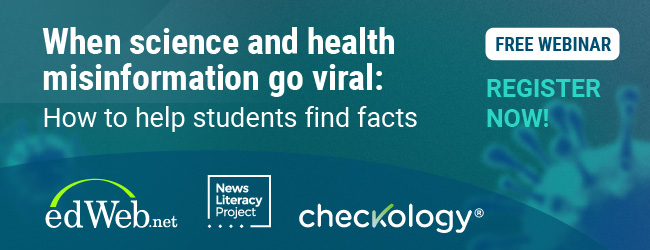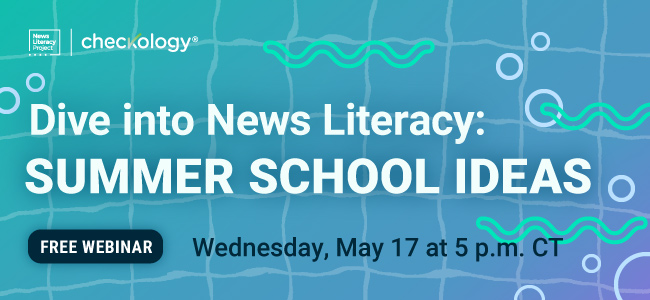Trial by Media? The Free Press and the Criminal Justice System
Get an in-depth look at the work and impact of investigative reporters in the criminal justice space – and what students can learn from this fascinating field – during this free webinar for educators, presented by the News Literacy Project on edWeb.net.
Trial by Media? The Free Press and the Criminal Justice System
Wednesday, April 30, 2025
5 p.m. ET/2 p.m. PT
In today’s fast-moving information landscape, investigative journalism plays a critical role in uncovering the truth. Yet journalists face growing challenges and threats to press freedoms.
Join us for an engaging edWebinar – just in time to mark World Press Freedom Day on May 3, 2025 – about the work and impact of investigative reporters in the criminal justice space, and what students can learn from this fascinating field. During this conversation led by the NLP’s Brittney Smith and Jostin Grimes, we’ll explore how investigative journalists challenge perceptions and navigate misinformation.
Attendees will learn how this important domain of journalism sheds light on complex systems, including the criminal justice system. You’ll also get a hands-on look at the Checkology® virtual classroom, a free, digital learning platform that helps students develop essential news literacy skills.
You’ll leave with actionable strategies for equipping learners with the tools to think critically about the news and how it is reported and to understand the importance of press freedoms. Don’t miss this opportunity to engage your students with one of today’s most compelling topics!
This edWebinar will be of interest to middle and high school teachers, librarians, school leaders, district leaders, and education technology leaders. This event complements NLP’s “Spring Sprints” resources.
🎁 All attendees will be automatically entered into a drawing to win a care package of NLP goodies.
Don’t miss this unique opportunity – reserve your spot today!
(Can’t make it at this time but still interested? Register anyway, and we’ll email you the recording.)
Cracking the Code: How AI Shapes What We See (And What We Miss)
This free webinar for educators, presented by the News Literacy Project on edWeb.net, will offer strategies for teaching students about algorithms and artificial intelligence.
Cracking the Code: How AI Shapes What We See (And What We Miss)
Wednesday, April 9, 2025
5 p.m. ET/2 p.m. PT
From shaping our social media feeds to influencing the news we see, algorithms and artificial intelligence are transforming the way we consume information. But how do these technologies work, and what impact do they have on our ability to distinguish fact from fiction?
Join the News Literacy Project for an in-depth conversation about the evolving role of AI and algorithms in news and social media.
You’ll learn directly from reporter Mia Sato, who covers the tech world and AI’s influence for The Verge.
Together, we’ll explore the rise of AI-generated content, machine learning systems that use data to shape our information bubbles, and the challenges posed by deepfakes. We’ll equip you with strategies to help students develop a more critical approach to digital news consumption.
By the end of the session, you’ll be armed with information about the ongoing evolution of AI, a deeper understanding of how we shape—and are shaped by—algorithms, and a toolbox of resources to support you in teaching your students. We will highlight Checkology®, our free, interactive e-learning platform designed to help educators provide essential news literacy skills to students.
This edWebinar will be of interest to middle and high school teachers, librarians, school leaders, district leaders, and education technology leaders. This event complements NLP’s “Spring Sprints” resources.
🎁 All attendees will be automatically entered into a drawing to win a care package of NLP goodies.
Don’t miss this unique opportunity – reserve your spot today!
(Can’t make it at this time but still interested? Register anyway, and we’ll email you the recording.)
30-Minute Webinar: Preview Checkology
This free webinar for educators, presented by the News Literacy Project, will introduce lessons on the Checkology® virtual classroom and help you get started with the platform.
30-Minute Webinar: Preview Checkology
Educators, maybe you’ve heard of the Checkology virtual classroom, the News Literacy Project’s free, award-winning e-learning platform with 20 interactive lessons for students in grades 5-12. But have you had the chance to teach with Checkology?
Join us for an engaging 30-minute webinar led by NLP staff to learn more about Checkology’s foundational lessons in essential news literacy topics, including:
- Recognizing and debunking misinformation.
- Understanding algorithms and generative artificial intelligence.
- Identifying credible sources.
You’ll come away with a plan for getting started on Checkology and with practical tips for integrating lessons into your curriculum. There will also be time for questions. This is designed to complement NLP’s “Spring Sprints” resources and webinars.
We’re holding two sessions of the same event — choose the one that works best for your schedule!
May 7 at 3:30 p.m. ET/12:30 p.m. PT
May 8 at 6:30 p.m. ET/3:30 p.m. PT
🎁 All attendees will be automatically entered into a drawing to win a care package of NLP goodies.
(Can’t make it at these times but still interested? Email us at [email protected] so we can set up a solo session that works better for your schedule.)
30-Minute Webinar: Preview Checkology
This free webinar for educators, presented by the News Literacy Project, will introduce lessons on the Checkology® virtual classroom and help you get started with the platform.
30-Minute Webinar: Preview Checkology
Educators, maybe you’ve heard of the Checkology virtual classroom, the News Literacy Project’s free, award-winning e-learning platform with 20 interactive lessons for students in grades 5-12. But have you had the chance to teach with Checkology?
Join us for an engaging 30-minute webinar led by NLP staff to learn more about Checkology’s foundational lessons in essential news literacy topics, including:
- Recognizing and debunking misinformation.
- Understanding algorithms and generative artificial intelligence.
- Identifying credible sources.
You’ll come away with a plan for getting started on Checkology and with practical tips for integrating lessons into your curriculum. There will also be time for questions. This is designed to complement NLP’s “Spring Sprints” resources and webinars.
We’re holding two sessions of the same event — choose the one that works best for your schedule!
April 16 at 3:30 p.m. ET/12:30 p.m. PT
April 17 at 6:30 p.m. ET/3:30 p.m. PT
🎁 All attendees will be automatically entered into a drawing to win a care package of NLP goodies.
(Can’t make it at these times but still interested? Email us at [email protected] so we can set up a solo session that works better for your schedule.)
30-Minute Webinar: Preview Checkology
This free webinar for educators, presented by the News Literacy Project, will introduce lessons on the Checkology®️ virtual classroom and help you get started with the platform.
30-Minute Webinar: Preview Checkology
Educators, maybe you’ve heard of the Checkology virtual classroom, the News Literacy Project’s free, award-winning e-learning platform with 20 interactive lessons for students in grades 5-12. But have you had the chance to teach with Checkology?
Join us for an engaging 30-minute webinar led by NLP staff to learn more about Checkology’s foundational lessons in essential news literacy topics, including:
- Recognizing and debunking misinformation.
- Understanding algorithms and generative artificial intelligence.
- Identifying credible sources.
You’ll come away with a plan for getting started on Checkology and with practical tips for integrating lessons into your curriculum. There will also be time for questions.
We’re holding multiple sessions of the same event — choose the one that works best for your schedule!
Jan. 14, 4:30 p.m. ET/1:30 p.m. PT
Jan. 14, 8 p.m. ET/5 p.m. PT
Jan. 15, 6:30 p.m. ET/3:30 p.m. PT
Jan. 15, 7:30 p.m. ET/4:30 p.m. PT
Feb. 11, 3:30 p.m. ET/12:30 p.m. PT
Feb. 12, 5:30 p.m. ET/2:30 p.m. PT
Feb. 12, 8:30 p.m. ET/5:30 p.m. PT
Feb. 13, 7:30 p.m. ET/4:30 p.m. PT
🎁 All attendees will be automatically entered into a drawing to win a care package of NLP goodies.
(Can’t make it at these times but still interested? Email us at [email protected] so we can set up a solo session that works better for your schedule.)
Hard hits, hidden truths: How investigative journalism tackled the NFL’s concussion problem
This free webinar open to educators, students and interested members of the public features a discussion with investigative journalist Jeanne Marie Laskas about her reporting on concussions in the NFL. It also covers the watchdog role of a free press.
Thurday, Feb. 6, 2025
1 p.m. ET/10 a.m. PT
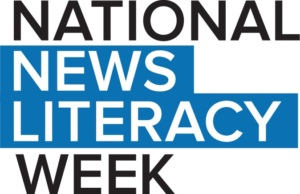 Today, most of us know that a professional football player can sustain potentially devastating brain injuries after years of repeated high-impact collisions with other players. That awareness is due in large part to the reporting of investigative journalist Jeanne Marie Laskas, whose 2009 GQ magazine article Game Brain profiled scientists who had made a stunning discovery: Concussions in pro football players could lead to dementia. It was a story the NFL didn’t want made public. But Laskas took on one of the most powerful corporations in the country to tell the story of those affected.
Today, most of us know that a professional football player can sustain potentially devastating brain injuries after years of repeated high-impact collisions with other players. That awareness is due in large part to the reporting of investigative journalist Jeanne Marie Laskas, whose 2009 GQ magazine article Game Brain profiled scientists who had made a stunning discovery: Concussions in pro football players could lead to dementia. It was a story the NFL didn’t want made public. But Laskas took on one of the most powerful corporations in the country to tell the story of those affected.
During this one-hour webinar, hosted by the News Literacy Project as part of National News Literacy Week, we will:
- Learn how Laskas conducted her reporting, despite resistance from the NFL.
- Learn about the watchdog role investigative journalists play in a democracy by documenting abuses by individuals, corporations and government entities.
- Explore free classroom resources for teaching about the watchdog role of a free press, including the “Democracy’s Watchdog” lesson on NLP’s Checkology® virtual classroom.
🎁 All attendees will be automatically entered into a drawing to win a care package of NLP goodies.
Educators are welcome to join with or without their students. There will be time for questions at the end of the webinar. This event is presented as a virtual Newsroom to Classroom visit.
This event will be hosted by NLP’s Senior Manager of District Partnerships Brittney Smith, and will feature Laskas, the author of the New York Times bestseller Concussion, the basis for the 2015 Golden Globe-nominated film of the same name. Laskas is the author of eight books and a contributing writer at The New York Times Magazine, a correspondent at GQ and a two-time National Magazine Award finalist in feature writing. She serves as a Distinguished Professor of English and founding director of the Center for Creativity at the University of Pittsburgh.
Don’t miss this unique opportunity – reserve your spot today!
(Can’t make it at this time but still interested? Register anyway, and we’ll email you the recording.)
Evaluating news media bias: A nuanced approach to a vital topic
This free webinar for educators, presented by the News Literacy Project on edWeb.net as part of National News Literacy Week, will offer strategies for teaching students about the complex topic of bias in news coverage.
Tuesday, Feb. 4, 2025
5 p.m. ET/2 p.m. PT
 People frequently perceive and allege bias in news coverage, but what does this really mean? What makes a piece of news biased, and who decides? What roles do our own biases play in our perceptions of bias?
People frequently perceive and allege bias in news coverage, but what does this really mean? What makes a piece of news biased, and who decides? What roles do our own biases play in our perceptions of bias?
In this free edWebinar, Peter Adams, NLP’s Senior Vice President of Research and Design, and Brittney Smith, NLP’s Senior Manager of District Partnerships (East), will help you teach this vital, controversial and complex topic in ways that empower students to meaningfully evaluate the fairness and impartiality of news coverage.
🎁 All attendees will be automatically entered into a drawing to win a care package of NLP goodies.
Attendees will:
- Learn about an approach for helping students evaluate potential bias in news by recognizing different forms that bias could take in news coverage.
- Apply this approach to actual examples from news and other information in ways that demonstrate when bias is—and isn’t—obvious.
- Reflect on the nuanced, highly subjective nature of perceived bias in news.
- Explore the limitations and pitfalls of popular media bias charts and rankings.
- Learn about free News Literacy Project classroom resources for teaching about news media bias, including the “Understanding Bias” lesson on NLP’s Checkology® virtual classroom.
This edWebinar will be of interest to middle and high school teachers, librarians, school leaders, district leaders and education technology leaders. There will be time for questions at the end of the presentation.
Don’t miss this unique opportunity – reserve your spot today!
(Can’t make it at this time but still interested? Register anyway, and we’ll email you the recording.)
30-Minute Webinar: Preview Checkology
This free webinar for educators, presented by the News Literacy Project, will introduce lessons on the Checkology®️ virtual classroom and help you get started with the platform.
30-Minute Webinar: Preview Checkology
Educators, maybe you’ve heard of the Checkology virtual classroom, the News Literacy Project’s free, award-winning e-learning platform with 20 interactive lessons for students in grades 5-12. But have you had the chance to teach with Checkology?
Join us for an engaging 30-minute webinar led by NLP staff to learn more about Checkology’s foundational lessons in essential news literacy topics, including:
- Recognizing and debunking misinformation
- Understanding algorithms and generative artificial intelligence
- Identifying credible sources
You’ll come away with a plan for getting started on Checkology and with practical tips for integrating lessons into your curriculum. There will also be time for questions.
We’re holding multiple sessions of the same event — choose the one that works best for your schedule!
Nov. 19, 2:30-3 CT
Nov. 19, 4-4:30 CT
Nov. 20, 6-6:30 CT
Nov. 20, 8-8:30 CT
🎁 All attendees will be automatically entered into a drawing to win a care package of NLP goodies.
(Can’t make it at these times but still interested? Email us at [email protected] so we can set up a solo session that works better for your schedule.)
Teach with TikTok: Help students stick to the facts on social media!
This free webinar for educators, presented by the News Literacy Project on edWeb.net, will offer strategies for empowering students to think critically as they scroll on social media.
Teach With TikTok: Help students stick to the facts on social media!
Thursday, Nov. 14, 2024
5 p.m. ET/2 p.m. PT
Hear us out—TikTok has a place in your classroom! Social media continues to shape the way information is shared and consumed, especially by young adults.
Given the deluge of online content, students are bound to encounter mis- and disinformation created and amplified by bad actors. And the sheer volume of daily social media posts makes these sites difficult to monitor and regulate. Nonetheless, TikTok is a regular news source for more than half of its users, according to the Pew Research Center.
In this free webinar, the News Literacy Project’s Alexa Volland and Brittney Smith will share insights and practical strategies to help students identify and debunk falsehoods, misinformation and conspiracy theories on social media.
Using the lens of news literacy, attendees will:
- Investigate examples of misinformation on platforms like TikTok, Instagram and X.
- Learn tips to fact-check viral posts before sharing.
- Explore strategies to help students identify credible sources on social media.
This edWebinar will be of interest to middle and high school teachers, librarians, school leaders, district leaders and education technology leaders. There will be time for questions at the end of the presentation.
Don’t miss this unique opportunity – reserve your spot today!
(Can’t make it at this time but still interested? Register anyway, and we’ll email you the recording.)
Navigating election misinformation: Lies, myths, and scares— oh my!
This free webinar for educators, presented by the News Literacy Project on edWeb.net, will offer nonpartisan, practical strategies to help future voters make educated decisions at the polls when it’s their turn to vote.
Navigating election misinformation: Lies, myths, and scares— oh my!
Wednesday, October 9, 2024
5 p.m. ET/2 p.m. PT
It’s October and we’re heading into a very spooky time—not just Halloween, but also election season! Over these remaining weeks before Election Day, helping students develop news literacy skills is critical for the next generation to become engaged critical thinkers prepared to make educated decisions at the polls.
This free webinar is designed to empower educators with free, nonpartisan tools and resources to take the “scare factor” out of teaching about election-season topics. Join NLP’s Brittney Smith and Dan Evon as they share insights and practical strategies to help future voters understand how to think about the news, not what to think.
Using the lens of news literacy, attendees will:
- Explore strategies to help students identify credible sources, understand the role of a free press in democracy, and identify and even debunk misinformation.
- Learn about NLP’s new election-focused misinformation dashboard and its potential uses in the classroom.
Don’t miss this unique opportunity – reserve your spot today!
(Can’t make it at this time but still interested? Register anyway, and we’ll email you the recording.)
Building a foundation with news literacy: Essential tools for educators
This free webinar for educators, presented by the News Literacy Project on edWeb.net, explores resources every educator needs in their toolkit to teach news literacy this school year.
Building a foundation with news literacy: Essential tools for educators
Wednesday, August 21, 2024
5 p.m. ET/2 p.m. PT
In today’s world, news literacy is too important to leave out of your curriculum – in fact, it’s where you must start if you want to ensure that your students understand how to think critically and identify news, sources and information they can trust. News literacy skills have a part to play in nearly any subject or grade level, so why not develop them from the get-go?
In this edWebinar, let the News Literacy Project help you kick off the back-to-school season with free foundational tools you can count on! You’ll hear about what makes news literacy the key building block of media literacy, why it’s so critical today, and how many states are meeting this moment with news and media literacy education requirements.
The News Literacy Project’s Brittney Smith and Susan Minichiello will cover the resources every educator needs in their teaching toolkit this year, including a key framework for developing and assessing news literacy skills, a newsletter that helps you bring teachable moments from the news straight to your students, and standards-aligned Checkology® lessons.
This edWebinar will be of interest to middle and high school teachers, librarians, and school and district leaders. There will be time for questions at the end of the presentation.
Don’t miss this unique opportunity – reserve your spot today!
(Can’t make it at this time but still interested? Register anyway, and we’ll email you the recording.)
Webinar: Get started with Checkology®️ and discover what’s new for 2024-25
This free webinar for educators, presented by the News Literacy Project, explores and introduces educators to the Checkology virtual classroom and lessons that are ideal for the back-to-school season.
Webinar: Get started with Checkology and discover what’s new for 2024-25
Thursday, August 15, 2024
5 p.m. ET/2 p.m. PT
In this free, 30-minute webinar designed for educators, learn all you need to know about using the Checkology virtual classroom, the News Literacy Project’s award-winning, free e-learning platform. The News Literacy Project’s Brittney Smith and Erin Olson will lead this discussion, which will include insights and recommendations for educators new to Checkology as well as those who’ve used it in the past.
Attendees will:
- Receive a primer on how to set up your account and assign lessons.
- Explore some of the best lessons for beginning to develop news literacy skills.
- Get one of the first looks at our rebooted lesson on algorithms and generative AI.
Add this short webinar to your back-to-school prep, and gain time-saving tips and tools to help you ease into a new school year!
This webinar will be of interest to middle and high school teachers, librarians, and school and district leaders. There will be time for questions at the end of the presentation.
Don’t miss this unique opportunity – reserve your spot today!
(Can’t make it at this time but still interested? Register anyway, and we’ll email you the recording.)
Webinar: Introducing Camp Fact-Check
This free webinar for educators, presented by the News Literacy Project, explores virtual lessons and other resources that can be used to teach students fact-checking skills over the summer.
Webinar: Introducing Camp Fact-Check
Wednesday, May 29, 2024
5 p.m. ET/2 p.m. PT
In this free, 30-minute webinar designed for educators teaching summer school or planning for next school year, learn about our Camp Fact-Check kit – which builds valuable fact-checking skills that students in grades 6-12 can apply across subjects. You’ll come away with a better understanding of lessons in the Checkology®️ virtual classroom, as well as other free classroom resources, including infographics, posters and even TikToks to help guide your teaching of news literacy concepts.
You’ll learn how to develop and boost students’ abilities in areas such as:
- Assessing the credibility of sources and claims.
- Googling “like a pro.”
- Debunking rumors and conspiratorial thinking.
NLP educator-experts Erin Olson and Shaelynn Farnsworth will lead this 30-minute session.
This webinar will be of interest to middle and high school teachers, librarians, and school and district leaders. There will be time for questions at the end of the presentation.
Don’t miss this unique opportunity – reserve your spot today!
(Can’t make it at this time but still interested? Register anyway, and we’ll email you the recording.)
Vetting election information
Vetting election information: How service members, veterans and military families can get credible voting information
Free
Virtual panel discussion
7 p.m. ET/4 p.m. PT Tuesday, May 21
As the 2024 election season is underway, falsehoods about voting and ballot issues already are circulating widely. Bad actors exploit a charged political atmosphere by spreading false claims about candidates, disinformation about how to vote and baseless rumors that undermine trust in election systems and infrastructure.
Military service members, veterans and their families in particular encounter conspiracy theories and other types of mis-and disinformation frequently. In a recent poll of Military Times readers, 57% said they personally have been targeted.
To break through this confusing and often misleading information landscape, the News Literacy Project is hosting a panel of experts who work with the military community for a virtual discussion about common types of election-related misinformation and practical tips and tools for finding reliable news sources before voting.
About the panelists
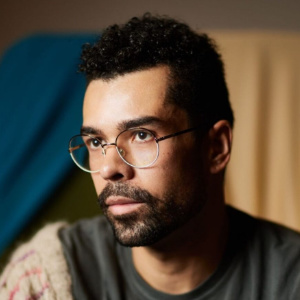

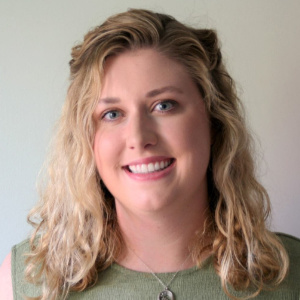
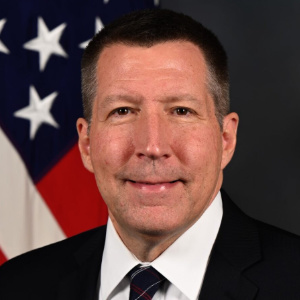
About the moderator
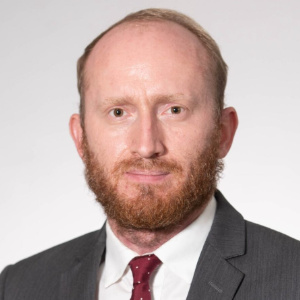
Finding water in a news desert
Finding water in a news desert
Preparing for elections when news coverage is scarce
Free
Virtual panel discussion
6 p.m. ET/3 p.m. PT Wednesday, April 24
When local news coverage is scarce, how do you find out what’s on the ballot in your community? As legacy news sources struggle – especially in rural areas – information becomes harder to find, and it can feel especially fraught as we prepare to vote. Meanwhile, pink-slime news outfits, which masquerade as local news sources but are funded by political partisans, and social media rumor mills are popping up to fill the void left by downsized or shuttered local news outlets.
Even with these challenges there are still ways you can be informed about ballot initiatives and candidates running for office – including reports on their spending and where they stand on the issues.
The News Literacy Project has invited three experts – Benjy Hamm, director of the University of Kentucky’s Institute for Rural Journalism and Community Issues; Alana Rocha, editor of the Rural News Network; and Brianna Lennon, county clerk for Boone County, Missouri and co-host of the podcast High Turnout Wide Margins – to walk us through how people living in news deserts can prepare to vote in 2024. We’ll talk about obstacles to finding credible information, as well as tools you can use to investigate the who, what, when, where, why and how of the 2024 elections.
About the panelists

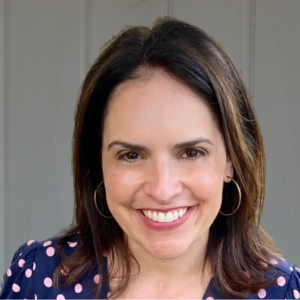
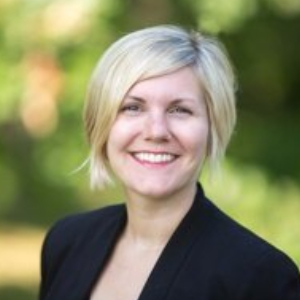
About the moderator
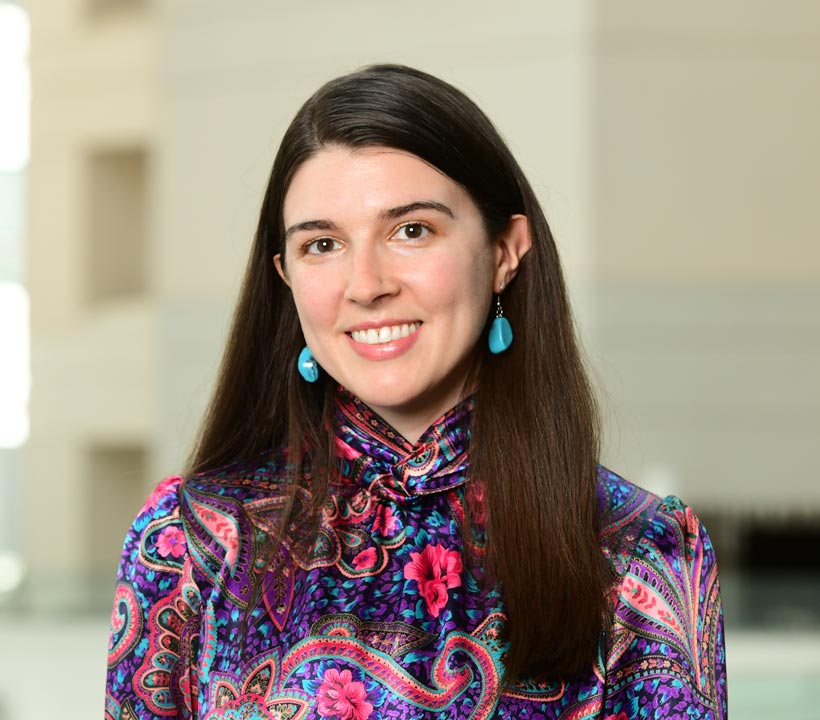
AI, the Digital Landscape, and Misinformation-Busting Superpowers for Students
This free webinar for educators, presented by the News Literacy Project and hosted by edWeb, explores misinformation in today’s digital landscape, including a close look at generative AI.
Tuesday, April 16, 2024
5:00 PM ET
In today’s world, misinformation is more than an inconvenience—it’s one of the greatest threats to our democracy. Whether or not your students are voting this fall, you can help ensure that they don’t fall for rumors, falsehoods, or AI-generated deceptions by empowering them with critical news literacy skills.
Join NLP’s Peter Adams and Brittney Smith for an educator’s guide to misinformation in today’s digital landscape, including a close look at generative AI. In addition to discussing fundamental tools and tips for fact checking and misinformation busting, they will explore how AI technology continues to evolve and how it can even be used to enrich the learning experience.
Topics to be covered include:
- The state of today’s digital landscape and its implications in an election year
- Strategies for helping students determine the credibility of evidence and sources
- Best practices for teaching about misinformation and conspiratorial thinking
Attendees will leave with a roadmap for getting started with teaching about misinformation, including how to use the Misinfo 101 Checkology® course and free classroom resources.
This edWebinar will be of interest to middle and high school teachers, librarians, and school and district leaders. There will be time for questions at the end of the presentation.
Don’t miss this unique opportunity – reserve your spot today!
(Can’t make it at this time but still interested? Register anyway, and we’ll email you the recording.)
About the speakers

Since joining NLP in 2009, he has coordinated classroom and after-school programs, served as Chicago program manager, worked on organizational strategy, and developed NLP’s digital program. He has also provided news literacy training and workshops to educators and others throughout the area. He was promoted to his current position in January 2014 and oversees NLP’s education team, which develops resources and training for teachers. He and the other team members are based in Chicago. Peter is a graduate of Indiana University, where he majored in English and African American studies and co-founded an independent monthly student newspaper. He has a master’s degree in the humanities from the University of Chicago.

She holds a bachelor’s degree in biological science from the University of Cincinnati and a master’s degree in teaching science to adolescents and young adults from Mount St. Joseph University. She is currently pursuing her doctorate in educational practice and innovation with a STEM focus at the University of South Carolina.
Why Press Freedom Matters: Exploring Evan Gershkovich’s Case
This free webinar for educators, presented by the News Literacy Project and hosted by edWeb, explores the importance of protecting press freedoms around the world.
Wednesday, May 1, 2024
5:00 PM ET
Join the News Literacy Project and The Wall Street Journal for an important conversation ahead of World Press Freedom Day (May 3).
Press freedoms, the legal and/or constitutional protections that journalists have in order to do their jobs, are fundamental to democracy. Without press freedoms and the standards-based reporting they enable, we risk the further spread of misinformation, disinformation, and declining trust in institutions.
In this edWebinar, we’ll look at a high-profile example of the denial of press freedoms: the case of Wall Street Journal reporter Evan Gershkovich, who was wrongfully detained in Russia last year on bogus charges of spying. Wall Street Journal Assistant Editor Paul Beckett, who leads the Journal’s efforts at securing Gershkovich’s release, will discuss the case with New Literacy Project’s Brittney Smith.
Topics to be covered include:
- How press freedoms impact newsgathering around the world
- Strategies for teaching about press freedoms, from a news literacy lens
- Best practices for teaching about standards-based journalism
- How to use journalistic practices to uncover and expose mis- and disinformation
Attendees will also learn about free News Literacy Project resources, including the Misinfo 101 course and classroom resources and the “Press Freedoms Around the World” lesson, offered on the News Literacy Project’s free Checkology®️ virtual classroom.
This edWebinar will be of interest to middle and high school teachers, librarians, and school and district leaders. There will be time for questions at the end of the presentation.
Don’t miss this unique opportunity – reserve your spot today!
(Can’t make it at this time but still interested? Register anyway, and we’ll email you the recording.)
About the speakers





She holds a bachelor’s degree in biological science from the University of Cincinnati and a master’s degree in teaching science to adolescents and young adults from Mount St. Joseph University. She is currently pursuing her doctorate in educational practice and innovation with a STEM focus at the University of South Carolina.
Infórmate en 2024
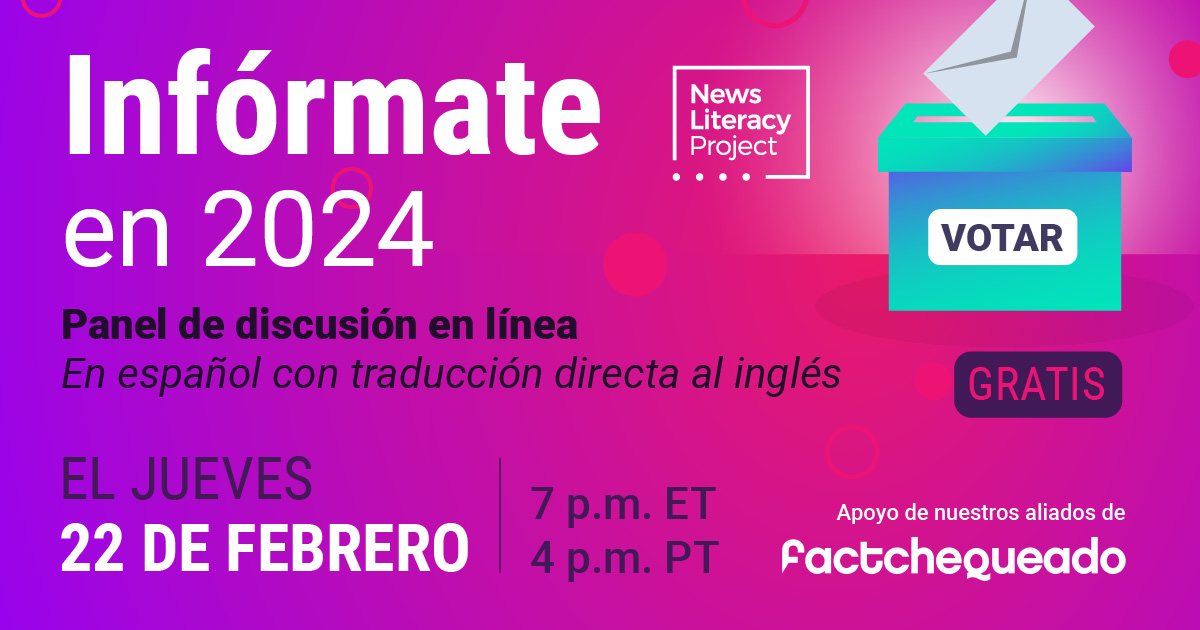

Click here to read the event description in English.
Los hispanohablantes en los Estados Unidos están en riesgo de exponerse a desinformación durante las elecciones de 2024. De mensajes falsos en WhatsApp a subtítulos incorrectos en vídeos en redes sociales, de anuncios engañosos a rumores falsos sobre las votaciones, las comunidades latinas son un objetivo claro de quienes quieren generar confusión sobre los sistemas de elección.
The News Literacy Project ha reunido a un panel de periodistas y expertos para ayudarnos a comprender por qué y cómo los hispanos están en riesgo.
Aprenderemos sobre temas y sobre los motivos detrás de la desinformación que tiene como objetivo a los hispanohablantes, sobre maneras de evitar la desinformación durante las elecciones en 2024 y cómo encontrar información creíble.
Las panelistas son Tamoa Calzadilla, editora en jefe de Factchequeado, Jesús García, editor de política en La Opinión, Elián Zidán, presentador del Edición Nocturna en Univision, y Cristina Tardáguila, consultora para el Instituto Democracia de las Américas.
Alba Mendiola, una embajadora para News Literacy Project, es la moderadora de la conversación. Alba fue periodista por 18 años y ahora es una maestra de periodismo en Chicago.
La conversación será en español con traducción directa al inglés.
Sobre las panelistas
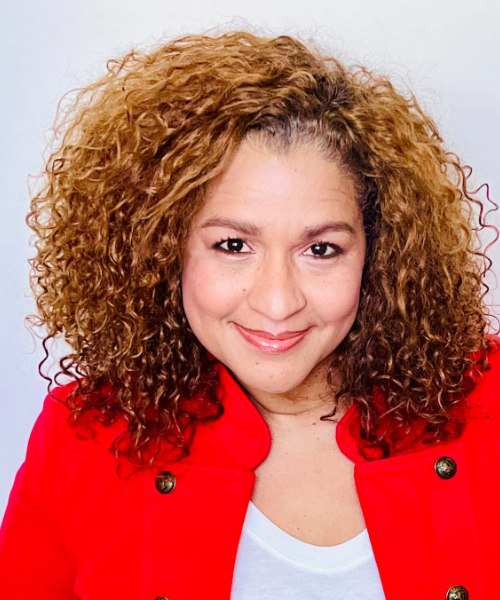


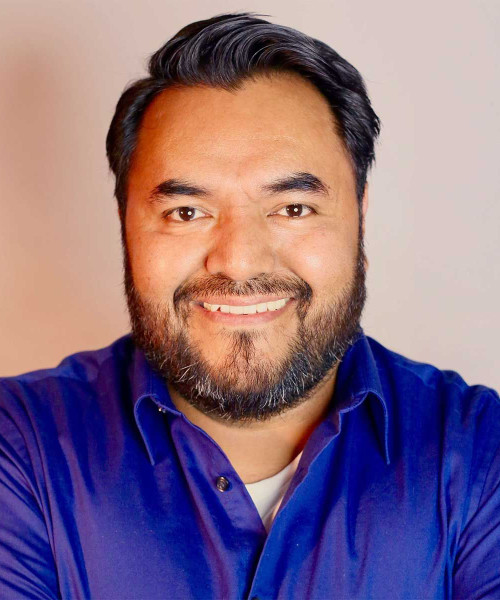


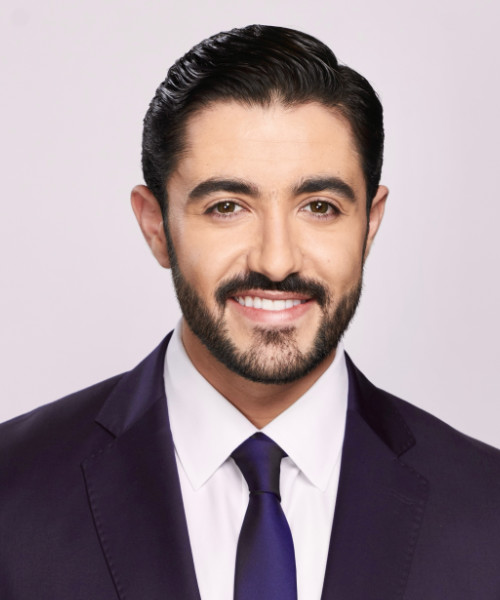


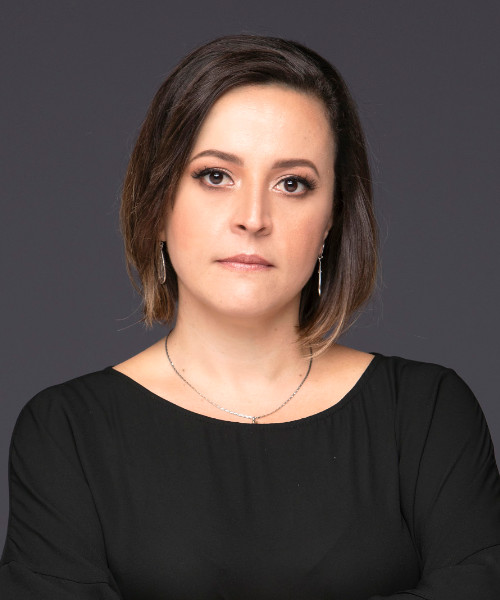


Sobre la moderadora
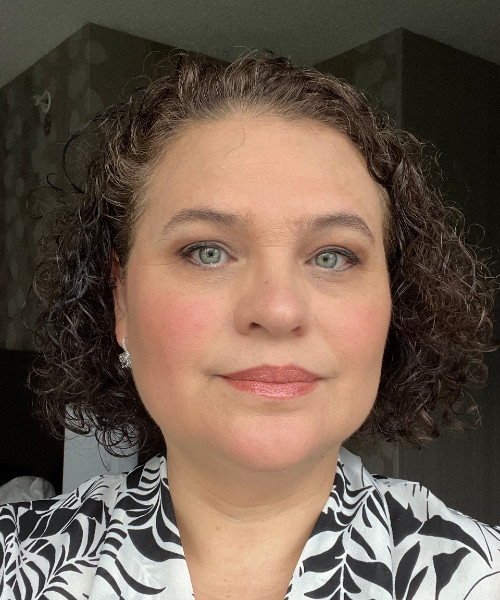


Be informed in 2024
- Thursday, Feb. 22 | 7 p.m. ET / 4 p.m. PT
- Free
- Virtual panel discussion
- In Spanish with live translation to English
Spanish-speaking Americans are at high risk for mis- and disinformation during the 2024 elections. From erroneous WhatsApp messages to incorrectly subtitled social media videos, false rumors and attack ads, Hispanics and Latinos are targeted by bad actors who seek to disrupt voting and sow mistrust and confusion around election systems.
The News Literacy Project is hosting a panel of journalists and experts to help us understand why and how Spanish speakers are at greater risk. We will learn about common trends and tropes in disinformation that target Hispanics, discuss ways everyone can avoid being misled during the 2024 elections, and explain how to find credible, trustworthy information.
Panelists include Tamoa Calzadilla, editor in chief of Factchequeado; Jesús García, managing editor of politics at La Opinión; Elián Zidán, Univision journalist and anchor of Edición Nocturna; and Cristina Tardáguila, research consultant for the Digital Democracy Institute of the Americas. NLP ambassador Alba Mendiola will moderate the discussion. Mendiola is a veteran journalist and journalism teacher in Chicago.
This conversation will be held in Spanish with live translation to English, including spoken interpretation and subtitles.
About the panelists












About the moderator



Is it misinformation?
Join the News Literacy Project for a free webinar to learn how to identify and avoid misinformation online and in your social networks.
Is it misinformation?
What is misinformation? How can we spot it and avoid it?
In this webinar, we’ll explore current trends in misinformation so you identify and avoid it when you see it. We will learn how to identify types of misleading, inaccurate and false information and how to recognize common propagators of falsehoods.
Are you informed or influenced?
Learn to identify credible election information in this free webinar Feb. 29, presented by the nonpartisan News Literacy Project.
Are you informed or influenced?
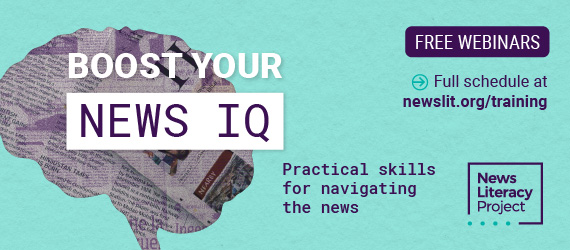

As we navigate the 2024 election, are we being informed or influenced?
This webinar will teach skills for identifying credible election information. We will learn how to evaluate the purpose of the information sources share, how to identify election misinformation trends and bias and how to prioritize finding credible sources.
When science and health misinformation go viral: How to help students find facts
This free webinar for educators, presented by the News Literacy Project and hosted by edWeb, explores strategies for teaching students news literacy — particularly through examples of science and health misinformation.
Tuesday, Feb. 13
5-6 p.m. ET/2-3 p.m. PT
Science and health misinformation is contagious – don’t let it go viral among your students!
As we continue to heal from a global pandemic, falsehoods presented as fact remain an issue in digital spaces such as social media. It is hard for young people to know what to believe, and misinformation confuses us all about the best steps to take for our own and our community’s health. Further, long histories of unfair and biased reporting and inhumane research practices have left certain communities often targeted by misinformation (with a distrust of news organizations and scientists, as well). Join us to learn about some of these past examples of misinformation’s impact on targeted communities. Then, explore steps you can take to help students avoid misleading claims and build confidence in making health decisions rooted in fact.
In this edWebinar, Brittney Smith of the News Literacy Project will host a panel conversation with special guests. They will discuss how to recognize when communities are being treated unfairly and share free resources for teaching your students tips to avoid falling for science and health misinformation. Relevant interdisciplinary lessons from the Checkology®️ virtual classroom — including “Be Health Informed” and “Harm & Distrust” — will be introduced, along with ideas for incorporating the lessons into your curriculum during Black History Month and beyond.
This edWebinar will be of interest to K-12 teachers as well as school and district leaders. There will be time for questions at the end of the presentation.
Don’t miss this unique opportunity – reserve your spot today!
(Can’t make it at this time but still interested? Register anyway, and we’ll email you the recording.)
PitchIt! TEXAS Student Essay Contest 2024
Educators! Give your students the opportunity to write about some of the most important topics of our time and explore how they can help combat misinformation and work to protect the freedom of the press.


Contest Deadline: April 26, 2024, 11:59 p.m. CT
Educators! Give your students the opportunity to write about some of the most important topics of our time and explore how they can help combat misinformation and work to protect the freedom of the press.
TIMELINE:
- Now through Jan. 31: Educator RSVP is open! It is also the suggested time frame to teach using lessons from Checkology® virtual classroom and other free NLP resources.
- Feb. 1 – April 26: Suggested time frame to workshop essays for submission.
- April 26: Essay deadline.
- May 1: PitchIt! Texas essay winners announced as well as time frame for students to create presentations to “pitch” during Grand Prize event.
- May TBD: PitchIt! Texas Grand prize event (week of May 13).
ABOUT
Student voice is a catalyst for positive change in schools and communities. For this reason, the Texas Association of Journalism Educators, in partnership with the News Literacy Project, is hosting a writing contest to empower students in Texas to be civically informed and engaged.
TEACHING GOALS
- Teachers have an authentic and engaging writing assignment that amplifies student voices and explores issues aligned to district curricula, standards and required topics, such as the First Amendment.
- Students analyze different types of misinformation and show the ability to think critically about what is and is not verifiable information.
- Students apply their news and media literacy skills to solve the misinformation problem.
- Students develop their 21st century civics and media literacy skills (see our Google Drive documents, academic contexts and connections).
AWARDS for each grade band (6-8 and 9-12)
GRAND PRIZE – PITCH:
$100 gift card scholarship for student winner, gift card for teacher and a school banner celebrating both.
FIRST PLACE – ESSAY
$75 gift card (teacher and student)
SECOND PLACE – ESSAY
$50 gift card (teacher and student)
THIRD PLACE – ESSAY
$25 gift card (teacher and student)
Note: First-, second- and third-place essay winners will prepare a presentation to “pitch” in the virtual PitchIt! Grand Prize event on Zoom (date TBA) and receive feedback from working journalists. The Grand Prize winners will be chosen at this time.
OVERVIEW
Texas middle and high school teachers may choose to assign the competition curriculum for individual classes or hold a schoolwide event. Each participating school may submit up to five entries per grade (6-12).
Educators are provided with free resources, as well as planning and organizational support for instructional purposes in the PitchIt! Student Essay Contest folder on NLP’s Google Drive. Join the NewsLitNation Facebook Group, for additional tips on how to best blend key news literacy concepts into your existing curriculum.
For this project, students will write a 500- to 1,000-word essay in response to one of the news literacy writing prompts, using a news article as inspiration. Submitted essays will be judged by NLP ambassadors.
The selected first- through third-place essay contest prize winners (three from middle school and three from high school) then compete at the virtual PitchIt! Grand Prize event, where they receive real-time feedback from journalists on their “pitch,” a presentation about their essay topic. The grand prize winners will be chosen at this time.
LEARNING TASK AND CHOOSING THE ESSAY TOPIC
News literacy is the ability to determine the credibility of news and other content to identify different types of information and to use the standards of fact-based journalism to determine what to trust, share and act on. Being news literate also means recognizing the critical role of the First Amendment and a free press in a democracy and interacting with news and information in ways that promote engaged participation in civic life.
OBJECTIVE
Students will be able to develop critical thinking and news literacy skills to find reliable information to make decisions, take action and responsibly share news through social media.
TASK
Students compose an essay in response to one of the news literacy writing prompts below, discussing how it relates to a local, national or international news article of their choice. They should form a thesis based on their chosen prompt and aim to convince their audience that the thesis is accurate and valid.
SUMMATIVE ASSESSMENT
Students will be evaluated using the PitchIt! rubric found among the PitchIt! Student Essay Contest documents in Google Drive. Teachers should provide students with a written copy of the rubric and relevant supporting materials.
PROCESS
STEP 1.
Teacher introduces the writing assignment to their class, the rubric* and the process by which the top essays will advance. News literacy topics are explored with students as they relate to the curriculum. Teachers are encouraged to explore the free educator resources on NewsLitNation® and the Checkology® virtual classroom on topics like the First Amendment.
STEP 2.
Students work with their teacher to select a news article/topic of their choice and to select one of the prompts below to follow in writing the essay. Encourage students to use the student planning document* as an outline before handing in a final draft.
STEP 3.
Teachers select up to five student essay finalists per grade, per school, and submit with cover letter to Sara Gonzales, Texas NewsLitNation ambassador: [email protected]
STEP 4.
NLP’s educator panel selects six essays (three from middle school and three from high school) to advance to the Grand Prize phase of the contest (the “pitch”!).
STEP 5.
Panel notifies the teacher at the beginning of May. The selected students then begin creating a visual presentation of their essay (PowerPoint or Google Slides, no more than three minutes in length), to compete in the final phase of the contest.
STEP 6.
First-, second- and third-place essay winners make their presentation (“pitch”) to a panel of journalists during the PitchIt! Texas Grand Prize event on Zoom and receive personalized feedback. Panelists choose the Grand Prize winners for middle school and high school competitors, who will be awarded during the event.
*Click here for the Google Drive folder with PitchIt! educator resources.
PROMPTS
Students should pick one of the following prompts:
- Prompt #1: Explain how the First Amendment protects freedom of the press. Use a recent local, national or international news story to illustrate the importance of freedom of the press and how other freedoms are required to protect it.
- Prompt #2: What steps should someone take to fact-check statements by a public figure? Consider a recent event in the news to analyze the ways in which the press can hold public figures accountable for what they say and share publicly.
- Prompt #3: People have civic responsibilities, things they should do but are not required by law. Explain which news literacy skills are essential to responsible civic participation by example of a recent event in the news.
- Prompt #4: Social media platforms are under increased public pressure to fact-check online content generated and shared by users. Which news literacy standards should social media platforms adopt to evaluate fact from fiction? Support your answer with real-world examples in the news media.
- Prompt #5: What is the role of the media in our society, and how can we become responsible consumers and producers of news and information in the digital age? Support your answer with real-world examples in the news.
- Prompt #6: How does confirmation bias, stereotyping and other cognitive biases impact how we interpret events, news and information? What are potential consequences of not verifying the accuracy of such information? Analyze a current news event with these multiple issues in mind for your essay.
ESSAY CRITERIA
- Submission must be original, unpublished work of one student.
- Essays are between 500-1,000 words, clearly addressing one of the prompts.
- Essay is typed in 12-point, Times New Roman, double-spaced with 1” margins and numbered pages.
- All essays and presentations must have a title.
- Students must include at least three credible sources to support their thesis.
- Essays must use MLA formatting, complete with in-text citations and a Works Cited page (not included in the word count). See Purdue Owl MLA Guide.
- Organization: Students must include an introduction with a thesis statement, multiple body paragraphs and a conclusion. See Purdue Owl Argumentative Essays.
- Essays must be proofread and should follow the rules for standard English (grammar, punctuation, mechanics) in writing. See Purdue Owl Grammar.
- Plagiarism: Any submission that is in part or wholly plagiarized will be disqualified from the PitchIt! competition. See Purdue Owl Plagiarism.
- A cover page MUST be included with the following information: Title of essay, student name, grade level, student’s complete mailing address, student’s email address, school’s name, principal’s name, teacher’s name, and best phone number and email address for the teacher.
- Only five essays from each grade may be submitted per school.
- Finalists must be able to virtually participate in the PitchIt! Grand Prize event mid-May (TBD).
SUBMISSION
Schools/teachers should submit their top five winning essays per grade with cover letter via email to: Sara Gonzales, news literacy ambassador, [email protected]
While not required, we encourage schools to conduct their own internal essay contest to establish the top essays for submission. Entries must be received by April 15.
FAQs:
Is there a submission fee? No fees! Better yet, there is no catch. All our educator resources are free, including Checkology!
What does “teacher support” mean? Successful writers are made through direct instruction. Teachers are encouraged to support students in both content and the writing process. The teacher’s name and contact information must also be indicated in the cover letter as the primary point of contact regarding the entry.
How are the essays judged? Essays will be reviewed by news literacy ambassadors using the PitchIt! rubric. Successful essays are about a local, national or international story that would have benefited from news literacy skills being applied to stop the spread of misinformation. For example, consider the impact a story had, and whether false claims about it could be debunked using reputable and verifiable sources of information.
Do you have essay tips for the students? Essays must have a recognizable beginning (opening or introduction), multiple body paragraphs and a conclusion. See Purdue Owl Argumentative Essays. Hook the reader with a strong opener. Readers will use the first few sentences to decide whether they will read the whole essay. Keep your paragraphs short. Popular essays tend to average three sentences per paragraph. Submit thoroughly thought-out, tightly focused essays. Originality is also important. In the conclusion, include a call to action. Encourage readers to take some positive steps. For instance, if you’ve given them a list of tips, prompt them to put some of the tips into practice.
How is the “pitch” judged? The first-, second- and third-place essay winners advance to the Grand Prize Event phase of the contest. To prepare, they must create a visual presentation based on their essay theme (PowerPoint or Google Slides). During the event they will each have three minutes to “pitch” their essay idea to a panel of journalists and will receive real-time feedback from the panel. Student presentations will be judged for creativity, delivery, impact and accuracy during the event (mid-March).
What document formats are accepted? Please submit the essay as a Google Doc, PDF or a Word document. The “pitch” presentation should be Google Slides or PowerPoint.
How are the finalists announced? Email notifications will be sent to teachers mid-May
Who can participate? The PitchIt! contest is open to all middle and high school students in Texas. If you live in Colorado, Florida, New York or Pennsylvania, please visit the main PitchIt! page for details.
I have more questions! Questions about NLP resources can be directed to Terry Berna, educator success manager, [email protected], or you can submit a request via the NLP Education Help Center or the NewsLitNation Facebook Group. Questions about rules can be directed to Miriam Romais, director of NewsLitNation, at [email protected], and questions about entries can be directed to our Texas ambassador Sara Gonzales, [email protected]
Extra, extra: How to solve the local news crisis
7 p.m. ET Monday, Jan. 22, 2024. Doors open at 6:30 p.m.
National Press Club, 529 14th St. NW, Washington, D.C.
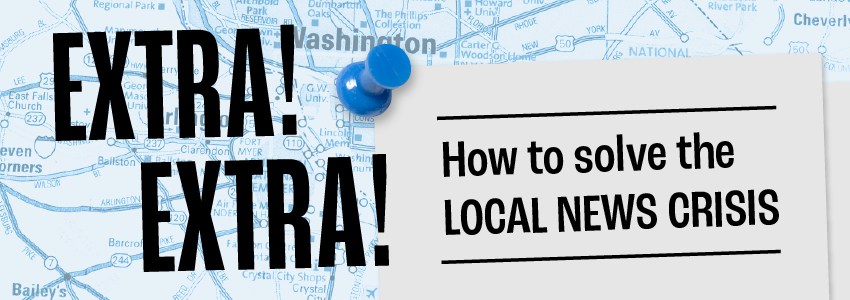

Extra, extra: How to solve the local news crisis
A live, in-person panel discussion featuring:
- Sarabeth Berman, CEO of the American Journalism Project
- Margaret Sullivan, author of Ghosting the News: Local Journalism and the Crisis of American Democracy
- Steven Waldman, founder and president of Rebuild Local News
- Kimi Yoshino, editor of The Baltimore Banner
- Moderated by Tracie Potts, executive director of the Eisenhower Institute
Program begins promptly at 7. Light hors d’oeuvres and refreshments will be served.
Join us as we kick off National News Literacy Week 2024! Seats are limited, so register today!
According to a 2022 Gallup/Knight Foundation survey, 67% of Americans say they regularly get local news from established sources such as broadcast TV, radio, newspapers or magazines. But since 2005, more than 2,500 newspapers in the U.S. – a quarter of them – have shut down. Research shows that when a local paper closes, communities experience lower voter turnout, decreased civic engagement, less accountability and increased polarization. With quality sources of local news in decline, our democracy is at risk.
That’s why our theme for National News Literacy Week 2024 is spotlight on local news. We must find solutions to the local news crisis so communities are well-informed and civically engaged. To explore these issues and kick off National News Literacy Week, we are hosting a distinguished panel of journalists, innovators, media critics and educators. They will discuss pressing issues facing local news coverage, how additional funding can help, and other possible solutions.
About the panelists
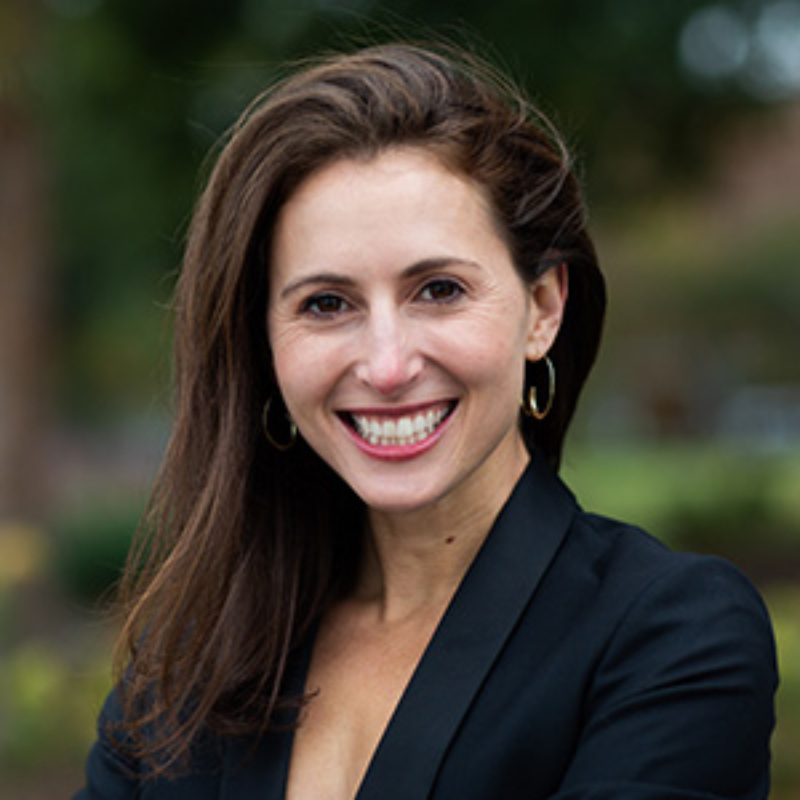

Sarabeth Berman serves as the chief executive officer of the American Journalism Project, the first venture philanthropy dedicated to local news. AJP makes grants to nonprofit local news organizations across the country, supporting the successful launch of new enterprises and partnering with existing news organizations to grow and sustain their businesses. Since launching in 2019, the organization has committed more than $44 million in investments in its growing portfolio of 37 nonprofit local news organizations.
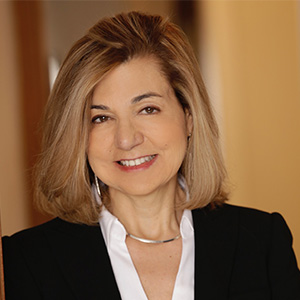

Margaret Sullivan is a weekly columnist for The Guardian, where she writes on media, politics and culture, and she will become the executive director for the Craig Newmark Center for Journalism Ethics and Security at Columbia Journalism School, Columbia University, on Jan. 1, 2024. Sullivan has published two acclaimed books, including Ghosting the News: Local Journalism and the Crisis of American Democracy and Newsroom Confidential: Lessons (and Worries) from an Ink-stained Life.


Steven Waldman is the founder and president of Rebuild Local News, which advocates for nonpartisan policies to increase reporting on local issues. He is also the co-founder and former president of Report for America, a national service program that places journalists in newsrooms across America. He previously covered national politics for Newsweek, U.S. News and World Report and the Washington Monthly.
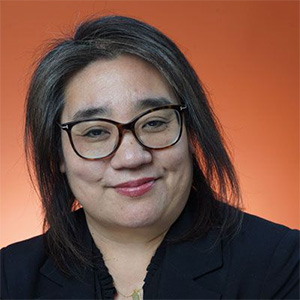

Kimi Yoshino is the editor in chief of The Baltimore Banner, a nonprofit local news outlet in Maryland. She was previously managing editor of the Los Angeles Times, where she worked for 21 years as a reporter, editor and strategic leader. She was a reporter at the Fresno Bee and the Stockton Record before joining The Times.


Tracie Potts is executive director of the Eisenhower Institute at Gettysburg College. She previously served as senior Washington Correspondent for NBC News, where she covered four presidential administrations, Congress and the federal government. She also was an anchor and reporter at local news stations in California.
NewsLitCamp®: The importance of local news
Join us on Jan. 26 for a National NewsLitCamp®️: The importance of local news, in partnership with E.W. Scripps Company, a virtual, immersive day of professional learning built exclusively for educators and part of our National News Literacy Week.


Friday, January 26, 2024
9 A.M. – 5 P.M. EST
The Importance of Local News — Especially During Election Season
Navigating news and information during an election year can be overwhelming. Often, major news organizations seemingly focus entirely on national politics. However, it can be that the most important races and issues, the ones that have the most impact on our lives, are typically found “down ballot.” To find news and information about state and local elections, we must turn to local news organizations.
Join us for NewsLitCamp during National News Literacy Week for a day of news literacy and journalism-focused professional learning with professionals from affiliates of Scripps. You will have an opportunity to connect directly with journalists and learn more about how to help students navigate our increasingly complex information landscape. You will also have an opportunity to build your content-area knowledge when it comes to news literacy topics for the classroom.
- The role of local reporting in national election coverage.
- Opportunities for creative classroom-to-newsroom partnerships.
- Local news, social media and sorting fact from fiction online: what local stations want teachers to know.
The first session starts at 9 a.m. ET with additional sessions continuing throughout the day until 5 p.m.
The event is open to all educators. No matter where you are or what grade level or subject area you teach, if you’re an educator interested in news literacy, we hope to see you there. There is no cost to attend.
Check out our online agenda, available on Eventbrite, to see session descriptions!
Can’t make the whole day but interested in a few sessions through the day? That’s great — you are welcome to attend the sessions that fit your schedule. Register now!
All sessions will be recorded and made available to everyone who registers after the event ends.
Questions? Email us at [email protected].
PitchIt! FLORIDA Student Essay Contest
Florida educators! Enter your students in our essay contest for a chance for both you and a student to win a gift card worth up to $100.

Contest Deadline: May 24, 2024, 11:59 p.m. EST.
TIMELINE:
- Nov. 1, 2023 – Feb. 16, 2024: Educator RSVP is open! Suggested time frame to teach using Checkology® virtual classroom and other NLP resources. (All free!)
- Feb. 19 – March 15, 2024: Regular essay submission period. Suggested time frame to teach using Checkology® virtual classroom and other free NLP resources.
- March 18 – May 24, 2024: Extended entry submission period. Suggested time frame to workshop essays for submission.
- May 24: Absolute essay submission deadline.
ABOUT
Student voice is a catalyst for positive change in schools and communities. For this reason, Miami-Dade County Public Schools (M-DCPS), in partnership with the News Literacy Project, is hosting a writing contest to empower Florida students to be civically informed and engaged.
The PitchIt! Florida student essay contest is an opportunity for students to write about some of the most important topics of our time and explore how they can help combat misinformation or work to protect freedom of the press.
TEACHING AND LEARNING GOALS
Teachers have an authentic and engaging writing assignment that amplifies student voices and explores issues aligned to district curricula, standards and required topics, such as the First Amendment.
Students analyze different types of misinformation and show the ability to think critically about what is and is not verifiable information.
Students apply their news and media literacy skills to solve the misinformation problem.
Students develop their 21st century civics and media literacy skills (see our Google Drive documents, academic contexts and connections).
“Our learning goals for this contest include helping students analyze different types of misinformation and showcasing their ability to think critically about what is and is not verifiable information. When we fail to teach news literacy, we actively disempower students from being engaged members of their communities. That’s why we hope students and teachers from across the district will enter and participate.”— Monica Valdes, social studies and film teacher, M-DCPS
AWARDS
The below are given for each grade band in 6-8 and 9-12.
- GRAND PRIZE – PITCH:
$100 gift card scholarship for student winner, gift card for teacher and a school banner celebrating both. - FIRST PLACE – ESSAY
$75 gift card (teacher and student) - SECOND PLACE – ESSAY
$50 gift card (teacher and student) - THIRD PLACE – ESSAY
$25 gift card (teacher and student)
Note: First-, second- and third place essay winners will prepare a presentation to “pitch” in the virtual PitchIt! Grand Prize event on Zoom (date TBA) and receive feedback from working journalists. The Grand Prize winners will be chosen at this time.
OVERVIEW
This contest is open to middle and high school students in Florida who participate with support from a teacher. Schools are encouraged to conduct their own internal essay competition to coordinate, and teachers submit their top three essays per grade band (6-8 and 9-12).
Educators are provided with free resources, as well as planning and organizational support for instructional purposes in the PitchIt! Student Essay Contest folder on NLP’s Google Drive. Join the NewsLitNation Facebook Group for additional tips on how to best blend key news literacy concepts into your existing curriculum.
For this project, students will write a 500- to 1,000-word essay in response to one of the news literacy writing prompts, using a news article as inspiration. Submitted essays will be judged by NLP ambassadors.
The selected first- through third-place essay contest prize winners (three from middle school and three from high school) then compete at the virtual PitchIt! Grand Prize event, where they receive real-time feedback from journalists on their “pitch,” a presentation about their essay topic. The grand prize winners will be chosen at this time.
LEARNING TASK AND CHOOSING THE ESSAY TOPIC
News literacy is the ability to determine the credibility of news and other content to identify different types of information and to use the standards of fact-based journalism to determine what to trust, share and act on. Being news literate also means recognizing the critical role of the First Amendment and a free press in a democracy and interacting with news and information in ways that promote engaged participation in civic life.
OBJECTIVE
Students will be able to develop critical thinking and news literacy skills to find reliable information to make decisions, take action and responsibly share news through social media.
TASK
Students compose an essay in response to one of the news literacy writing prompts below, discussing how it relates to a local, national or international news article of their choice. They should form a thesis based on their chosen prompt and aim to convince their audience that the thesis is accurate and valid.
SUMMATIVE ASSESSMENT
Students will be evaluated using the PitchIt! rubric found among the PitchIt! Student Essay Contest documents in Google Drive. Teachers should provide students with a written copy of the rubric and relevant supporting materials.
PROCESS
- Step 1. Teacher introduces the writing assignment to students, the rubric* and the process by which the top essays will advance. News literacy topics are explored with students as they relate to the curriculum. Teachers are encouraged to use the free educator resources on NewsLitNation® and the Checkology® virtual classroom on topics like the First Amendment.More resources are at the M-DCPS library, which includes access to The New York Times, articles on ProQuest or any other available sources.
- Step 2. Students work with their teacher to select a news article/topic, picking one of the prompts below to follow in writing the essay. Encourage students to use the student planning document* as an outline and review the essay formatting requirements before handing in a final draft.
- Step 3. Teachers choose up to five student essays per grade, per school, and submit with cover letter via email to Monica Valdes, Florida’s NewsLitNation ambassador: [email protected]. While not required, we encourage schools to conduct their own internal essay contest to establish the top essays for submission.
- Step 4. NLP’s educator panel selects six essays (three from middle school and three from high school) to advance to the Grand Prize phase of the contest (the “pitch”!).
- Step 5. Panel notifies the teacher by May 24, 2024. The selected students then begin creating a visual presentation of their essay (PowerPoint or Google Slides) no more than three minutes in length, to compete in the final phase of the contest.
- Step 6. First-, second- and third-place essay winners make their three-minute presentation (“pitch”) to a panel of journalists during the PitchIt! Florida Grand Prize event on Zoom and receive personalized feedback. Panelists choose the Grand Prize winners for middle school and high school competitors, who will be awarded during the event.
*Click here for the Google Drive folder with PitchIt! educator resources.
PROMPTS
Students should pick one of the following prompts:
- Prompt #1: Explain how the First Amendment protects freedom of the press. Use a recent local, national or international news story to illustrate the importance of freedom of the press and how other freedoms are required to protect it.
- Prompt #2: What steps should someone take to fact-check statements by a public figure? What are the potential consequences of sharing it online? Consider a recent event in the news to analyze the ways in which the press can hold public figures accountable for what they say and share publicly.
- Prompt #3: People have civic responsibilities, things they should do but are not required by law. Explain which news literacy skills are essential to responsible civic participation by example of a recent event in the news.
- Prompt #4: Social media platforms are under increased public pressure to fact-check online content generated and shared by users. Which news literacy standards should social media platforms adopt to evaluate fact from fiction? Support your answer with real-world examples in the news media.
- Prompt #5: What is the role of the media in our society, and how can we become responsible consumers and producers of news and information in the digital age? Support your answer with real-world examples in the news.
- Prompt #6: How does confirmation bias, stereotyping and other cognitive biases impact how we interpret events, news and information? What are potential consequences of not verifying the accuracy of such information? Analyze a current news event with these multiple issues in mind for your essay.
CRITERIA
- Submission must be original, unpublished work of one student.
- Essay is between 500-1,000 words, clearly addressing one of the prompts.
- Essay is typed in 12-point, Times New Roman, double-spaced with 1” margins and numbered pages.
- Submissions must have a title.
- Students must include at least three credible sources to support their thesis.
- Proper citation of sources is required.
- Only five essays from each grade may be submitted per school.
- Essays must be proofread and should follow the rules for standard English (grammar, punctuation, mechanics) in writing. See Purdue Owl Grammar.
- A cover page MUST be included with the following information: student name, student ID, grade level, student’s complete address, best phone number for student, school’s name, principal’s name, teacher’s name, best phone number and email address for teacher and title of essay.
- Finalists must be able to virtually participate in the PitchIt! Grand Prize event, with camera on, and submit a media release form (date TBA).
SUBMISSION:
Schools/teachers should submit their top five winning essays per grade with required cover letter via email to: Monica Valdes, Florida news literacy ambassador, [email protected]. Entries must be received by May 24, 2024.
FAQs:
Is there a submission fee? No fees! Better yet, there is no catch. All our educator resources are free, including Checkology!
What does “teacher support” mean? Successful writers are made through direct instruction. Teachers are encouraged to support students in both content selection and the writing process. The teacher’s name and contact information must be indicated in the cover letter as the primary point of contact regarding the entry.
How are the essays judged? During the first phase of the contest, essays are reviewed by news literacy ambassadors for readability, accuracy and originality, using the PitchIt! Rubric. Successful essays are about a local, national or international story that would have benefited from news literacy skills being applied to stop the spread of misinformation. For example, consider the impact a story had, and whether false claims about it could be debunked using reputable and verifiable sources of information.
Do you have essay tips for the students? Essays must have a recognizable beginning (opening or introduction), multiple body paragraphs and a conclusion. See Purdue Owl Argumentative Essays. Hook the reader with a strong opener. Readers will use the first few sentences to decide whether they will read the whole essay. Keep your paragraphs short. Popular essays tend to average three sentences per paragraph. Submit thoroughly thought-out, tightly focused essays. Originality is also important. In the conclusion, include a call to action. Encourage readers to take some positive steps. For instance, if you’ve given them a list of tips, prompt them to put some of the tips into practice.
How is the “pitch” judged? The first-, second- and third-place essay winners advance to the Grand Prize event phase of the contest. To prepare, they must create a visual presentation based on their essay theme. During the event they will each have three minutes to “pitch” their essay idea to a panel of journalists and will receive real-time feedback. Student presentations will be judged for creativity, delivery, impact and accuracy during the event.
Who can participate? The PitchIt! contest is open to all middle and high school students in the State of Florida. If you live in Pennsylvania, Colorado or New York, please visit the main PitchIt! page for details.
What document formats are accepted? The following formats are accepted: Microsoft Word, PDF, Google Doc.
How are the finalists announced? Email notifications will be sent to teachers by early May.
I have more questions! Questions about NLP resources can be directed to Terry Berna, educator success manager, [email protected], or you can submit a request via the NLP Education Help Center or the NewsLitNation Facebook Group. Questions about rules can be directed to Miriam Romais, director of NewsLitNation, at [email protected], and questions about entries can be directed to our Florida ambassador Monica Valdes at [email protected].
PitchIt! New York Student Essay Contest
New York State educators! Enter your students in our essay contest for a chance to win a gift card worth up to $200.


Contest Deadline: April 19, 2024, 11:59 p.m. EST.
TIMELINE:
- Nov. 1, 2023 – Feb. 13: Educator RSVP is open! Suggested time frame to teach using Checkology® virtual classroom and other free NLP resources.
- Feb. 14 – March 13: Suggested time frame to teach using NLP resources or workshop essays for early submission.
- March 14 – April 18: Suggested time frame to using NLP resources or workshop essays for regular essay submission period.
- April 19: Essay submission deadline, 11:59 p.m. EST.
ABOUT
Student voice is a catalyst for positive change in schools and communities. For this reason, the News Literacy Project is hosting a writing contest to empower New York students to be civically informed and engaged.
The PitchIt! New York student essay contest is an opportunity for students to write about some of the most important topics of our time and explore how they can help combat misinformation or work to protect freedom of the press.
TEACHING AND LEARNING GOALS
- Teachers have an authentic and engaging writing assignment that amplifies student voices and explores issues aligned to district curricula, standards and required topics, such as the First Amendment.
- Students analyze different types of misinformation and show the ability to think critically about what is and is not verifiable information.
- Students apply their news and media literacy skills to solve the misinformation problem.
- This project challenges students to develop their 21st century civics and media literacy skills.
AWARDS
The below are given to students for each grade band in 6-8 and 9-12.
GRAND PRIZE – PITCH:
$200 gift card scholarship and school banner
FIRST PLACE – ESSAY
$150 gift card scholarship
SECOND PLACE – ESSAY
$100 gift card scholarship
THIRD PLACE – ESSAY
$50 gift card scholarship
Note: First-, second- and third place essay winners will prepare a presentation to “pitch” in the virtual PitchIt! Grand Prize event on Zoom (date TBA) and receive feedback from working journalists. The Grand Prize winners will be chosen at this time.
OVERVIEW
This contest is open to middle and high school students in New York State who participate with the support from a teacher and/or school. Participating teachers may choose to adapt the competition curriculum for individual classes or hold a schoolwide event. Each participating school may submit up to five entries per grade (6-12).
Educators are provided with free resources, as well as planning and organizational support for instructional purposes in the PitchIt! Student Essay Contest folder on NLP’s Google Drive. Join the NewsLitNation Facebook Group, for additional tips on how to best blend key news literacy concepts into your existing curriculum.
For this project, students will write a 500- to 1,000-word essay in response to one of the news literacy writing prompts, using a news article as inspiration. Submitted essays will be judged by NLP ambassadors.
The selected first- through third-place essay contest prize winners (three from middle school and three from high school) then compete at the virtual PitchIt! Grand Prize event, where they receive real-time feedback from journalists on their “pitch,” a presentation about their essay topic. The grand prize winners will be chosen at this time.
LEARNING TASK AND CHOOSING THE ESSAY TOPIC
News literacy is the ability to determine the credibility of news and other content to identify different types of information and to use the standards of fact-based journalism to determine what to trust, share and act on. Being news literate also means recognizing the critical role of the First Amendment and a free press in a democracy and interacting with news and information in ways that promote engaged participation in civic life.
OBJECTIVE
Students will be able to develop critical thinking and news literacy skills to find reliable information to make decisions, take action and responsibly share news through social media.
TASK
Students compose an essay in response to one of the news literacy writing prompts below, discussing how it relates to a local, national or international news article of their choice. They should form a thesis based on their chosen prompt and aim to convince their audience that the thesis is accurate and valid.
SUMMATIVE ASSESSMENT
Students will be evaluated using the PitchIt! rubric found among the PitchIt! Student Essay Contest documents in Google Drive. Teachers should provide students with a written copy of the rubric and relevant supporting materials.
PROCESS
Step 1. Teacher introduces the writing assignment to their class, the rubric* and the process by which the top essays will advance. News literacy topics are explored with students as they relate to the curriculum. Teachers are encouraged to use the free educator resources on NewsLitNation® or the Checkology® virtual classroom on topics like the First Amendment. See resources from the New York Public Library, which includes access to The New York Times, or any other available news sources.
Step 2. Students work with their teacher to select a news article/topic of their choice and select one of the prompts below to follow in writing the essay. Encourage students to use the essay planning document* as an outline before handing in a final draft.
Step 3. Teachers select up to five student essays per grade, per school, and submit with cover letter via email to Alesha Smith, New York’s NewsLitNation ambassador: [email protected].
Step 4. NLP’s educator panel selects six essays (three from middle school and three from high school) to advance to the Grand Prize phase of the contest (the “pitch”!).
Step 5. Panel notifies the teacher by May 6, 2024. The selected students then begin creating a visual presentation of their essay (PowerPoint or Google Slides) no more than three minutes in length, to compete in the final phase of the contest.
Step 6: First-, second- and third-place essay winners make their three-minute presentation (“pitch”) to a panel of journalists during the PitchIt! New York Grand Prize event on Zoom and receive personalized feedback. Panelists choose the Grand Prize winners for middle school and high school competitors, who will be awarded during the event.
*Click here for the Google Drive folder with PitchIt! educator resources.
PROMPTS
Students should pick one of the following prompts:
Prompt #1: Explain how the First Amendment protects freedom of the press. Use a recent local, national or international news story to illustrate the importance of freedom of the press and how other freedoms are required to protect it.
Prompt #2: What steps should someone take to fact-check statements by a public figure? Consider a recent event in the news to analyze the ways in which the press can hold public figures accountable for what they say and share publicly.
Prompt #3: People have civic responsibilities, things they should do but are not required by law. Explain which news literacy skills are essential to responsible civic participation by example of a recent event in the news.
Prompt #4: Social media platforms are under increased public pressure to fact-check online content generated and shared by users. Which news literacy standards should social media platforms adopt to evaluate fact from fiction? Support your answer with real-world examples in the news media.
Prompt #5: What is the role of the media in our society, and how can we become responsible consumers and producers of news and information in the digital age? Support your answer with real-world examples in the news.
Prompt #6: How does confirmation bias, stereotyping and other cognitive biases impact how we interpret events, news and information? What are potential consequences of not verifying the accuracy of such information? Analyze a current news event with these multiple issues in mind for your essay.
ESSAY CRITERIA
- Submission must be original, unpublished work of one student.
- Essay is between 500-1,000 words, clearly addressing one of the prompts.
- Essay is typed in 12-point, Times New Roman, double-spaced with 1” margins and numbered pages.
- Submissions must have a title.
- Students must include at least three credible sources to support their thesis.
- Essays must use MLA formatting, complete with in-text citations and a Works Cited page (not included in the word count). See Purdue Owl MLA Guide.
- Essays must be proofread and should follow the rules for standard English (grammar, punctuation, mechanics) in writing. See Purdue Owl Grammar.
- Plagiarism: any submission that is in part or wholly plagiarized will be disqualified from the PitchIt! competition. See Purdue Owl Plagiarism.
- A cover page MUST be included with the following information: title of essay, student name, grade level, student’s complete mailing address, student’s email address, school’s name, principal’s name, teacher’s name, and best phone number and email address for the teacher.
- Finalists must be able to virtually participate in the PitchIt! New York Grand Prize event at the end of May 2024.
SUBMISSION:
Schools/teachers should submit their top five winning essays per grade with required cover letter to: Alesha Smith, NLP’s New York NewsLitNation ambassador, at [email protected]. Entries must be received by April 19, 2024.
While not required, we encourage schools to conduct their own internal essay contest to establish the top essays for submission.
FAQs:
Is there a submission fee? No fees! Better yet, there is no catch. All our educator resources are free, including Checkology!
What does “teacher support” mean? Successful writers are made through direct instruction. Teachers are encouraged to support students in both content and the writing process. The teacher’s name and contact information must also be indicated in the cover letter as the primary point of contact regarding the entry.
How are the essays judged? During the first phase of the contest, essays are reviewed by news literacy ambassadors for readability, accuracy and originality, using the PitchIt! Rubric. Successful essays are about a local, national or international story tied in with the student’s knowledge of news literacy concepts. For example, using one of the prompts, consider the impact a story had, and whether false claims about it could be debunked using reputable and verifiable sources of information.
Do you have essay tips for the students? Essays must have a recognizable beginning (opening or introduction), multiple body paragraphs and a conclusion. See Purdue Owl Argumentative Essays. Hook the reader with a strong opener. Readers will use the first few sentences to decide whether they will read the whole essay. Keep your paragraphs short. Popular essays tend to average three sentences per paragraph. Submit thoroughly thought-out, tightly focused essays. Originality is also important. In the conclusion, include a call to action. Encourage readers to take some positive steps. For instance, if you’ve given them a list of tips, prompt them to put some of the tips into practice.
How is the “pitch” judged? The first-, second- and third-place essay winners advance to the Grand Prize event phase of the contest. To prepare, they must create a visual presentation based on their essay theme (PowerPoint or Google Slides). During the event they will each have three minutes to “pitch” their essay idea to a panel of journalists and will receive real-time feedback. Students’ presentations will be judged for creativity, delivery, impact and accuracy during the PitchIt! New York Grand Prize event, end of May, 2024.
Who can participate? The PitchIt! contest is open to all middle and high school students in New York State. If you live in Colorado, Pennsylvania or Florida, please visit the main PitchIt! page for details.
What document formats are accepted? Please submit the essay as a Docx, Word document, PDF file or Google Doc.
How are the finalists announced? Email notifications will be sent to teachers by May 6, 2024.
I have more questions! Questions about NLP resources can be directed to Terry Berna, educator success manager, [email protected], or you can submit a request via the NLP Education Help Center or the NewsLitNation Facebook Group. Questions about rules can be directed to Miriam Romais, director of NewsLitNation, at [email protected], and questions about entries can be directed to our New York ambassador, Alesha Smith, [email protected].
“I once read that the belief in misinformation can result in adverse physical and psychological consequences. Our learning goals for this contest are for students to learn how to hone their skills in identifying, researching, analyzing and synthesizing information from credible sources that can be verified; this is an essential trait of news literacy. Guiding students to be successful in news literacy equips our scholars with the ability to analyze any issue through a more critical lens, which encourages higher-level thinking in their current roles as students and beyond. This expertise will be impactful in their daily academic and practical lives. For the stated reasons, we are hopeful that teachers and students from across the district and state will participate in this unique opportunity.”
—Alesha Smith, ELA lead teacher-coach/ social studies teacher, NYC DOE
“Participating in PitchIt! NYC was a great experience for me! I enjoyed the combination of essay writing and the oral pitching components in the competition. I am very grateful that I was given the opportunity to participate in the contest and compete as a finalist—I would definitely recommend this contest to my fellow students!”
-Patricia, winning essay student
PitchIt! PENNSYLVANIA Student Essay Contest 2024
Educators! Give your students the opportunity to write about some of the most important topics of our time and explore how they can help combat misinformation and work to protect the freedom of the press.


Friday, March 1: Deadline
TIMELINE:
- Nov. 1, 2023 – January 2024: Educator RSVP is open! Suggested time frame to teach using Checkology® virtual classroom and other free NLP resources.
- January 2024 – Feb. 26, 2024: Suggested time frame to workshop essays for submission.
- March 1, 2024: Essay deadline.
- March 4, 2024: PitchIt! Pennsylvania finalists announced.
- March TBD, 2024: PitchIt! Pennsylvania State Finals (week of March 18).
ABOUT
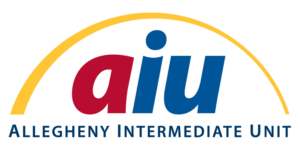

TEACHING GOALS
- Teachers have an authentic and engaging writing assignment that amplifies student voices and explores issues aligned to district curricula, standards and required topics, such as the First Amendment.
- Students analyze different types of misinformation and show the ability to think critically about what is and is not verifiable information.
- Students apply their news and media literacy skills to solve the misinformation problem.
- Students develop their 21st century civics and media literacy skills (see our Google Drive documents, academic contexts and connections).
AWARDS for each grade band (6-8 and 9-12)
GRAND PRIZE – PITCH:
$100 gift card scholarship for student winner, gift card for teacher and a school banner celebrating both.
FIRST PLACE – ESSAY
$75 gift card (teacher and student)
SECOND PLACE – ESSAY
$50 gift card (teacher and student)
THIRD PLACE – ESSAY
$25 gift card (teacher and student)
Note: First-, second- and third-place essay winners will prepare a presentation to “pitch” in the virtual PitchIt! Grand Prize event on Zoom (date TBA) and receive feedback from working journalists. The Grand Prize winners will be chosen at this time.
OVERVIEW
Pennsylvania middle and high school teachers may choose to assign the competition curriculum for individual classes or hold a schoolwide event. Each participating school may submit up to five entries per grade (6-12).
Educators are provided with free resources, as well as planning and organizational support for instructional purposes in the PitchIt! Student Essay Contest folder on NLP’s Google Drive. Join the NewsLitNation Facebook Group, for additional tips on how to best blend key news literacy concepts into your existing curriculum.
For this project, students will write a 500- to 1,000-word essay in response to one of the news literacy writing prompts, using a news article as inspiration. Submitted essays will be judged by NLP ambassadors.
The selected first- through third-place essay contest prize winners (three from middle school and three from high school) then compete at the virtual PitchIt! Grand Prize event, where they receive real-time feedback from journalists on their “pitch,” a presentation about their essay topic. The grand prize winners will be chosen at this time.
LEARNING TASK AND CHOOSING THE ESSAY TOPIC
News literacy is the ability to determine the credibility of news and other content to identify different types of information and to use the standards of fact-based journalism to determine what to trust, share and act on. Being news literate also means recognizing the critical role of the First Amendment and a free press in a democracy and interacting with news and information in ways that promote engaged participation in civic life.
OBJECTIVE
Students will be able to develop critical thinking and news literacy skills to find reliable information to make decisions, take action and responsibly share news through social media.
TASK
Students compose an essay in response to one of the news literacy writing prompts below, discussing how it relates to a local, national or international news article of their choice. They should form a thesis based on their chosen prompt and aim to convince their audience that the thesis is accurate and valid.
SUMMATIVE ASSESSMENT
Students will be evaluated using the PitchIt! rubric found among the PitchIt! Student Essay Contest documents in Google Drive. Teachers should provide students with a written copy of the rubric and relevant supporting materials.
PROCESS
STEP 1. Teacher introduces the writing assignment to their class, the rubric* and the process by which the top essays will advance. News literacy topics are explored with students as they relate to the curriculum. Teachers are encouraged to explore the free educator resources on NewsLitNation® and the Checkology® virtual classroom on topics like the First Amendment.
STEP 2. Students work with their teacher to select a news article/topic of their choice and to select one of the prompts below to follow in writing the essay. Encourage students to use the student planning document* as an outline before handing in a final draft.
STEP 3. Teachers select up to five student essay finalists per grade, per school, and submit with cover letter to Deborah Domingues-Murphy, Pennsylvania’s NewsLitNation ambassador: [email protected].
STEP 4. NLP’s educator panel selects six essays (three from middle school and three from high school) to advance to the Grand Prize phase of the contest (the “pitch”!).
STEP 5. Panel notifies the teacher at the beginning of March. The selected students then begin creating a visual presentation of their essay (PowerPoint or Google Slides, no more than three minutes in length), to compete in the final phase of the contest.
STEP 6. First-, second- and third-place essay winners make their presentation (“pitch”) to a panel of journalists during the PitchIt! Pennsylvania Grand Prize event on Zoom and receive personalized feedback. Panelists choose the Grand Prize winners for middle school and high school competitors, who will be awarded during the event.
*Click here for the Google Drive folder with PitchIt! educator resources.
PROMPTS
Students should pick one of the following prompts:
- Prompt #1: Explain how the First Amendment protects freedom of the press. Use a recent local, national or international news story to illustrate the importance of freedom of the press and how other freedoms are required to protect it.
- Prompt #2: What steps should someone take to fact-check statements by a public figure? Consider a recent event in the news to analyze the ways in which the press can hold public figures accountable for what they say and share publicly.
- Prompt #3: People have civic responsibilities, things they should do but are not required by law. Explain which news literacy skills are essential to responsible civic participation by example of a recent event in the news.
- Prompt #4: Social media platforms are under increased public pressure to fact-check online content generated and shared by users. Which news literacy standards should social media platforms adopt to evaluate fact from fiction? Support your answer with real-world examples in the news media.
- Prompt #5: What is the role of the media in our society, and how can we become responsible consumers and producers of news and information in the digital age? Support your answer with real-world examples in the news.
- Prompt #6: How do confirmation bias, stereotyping and other cognitive biases impact how we interpret events, news and information? What are potential consequences of not verifying the accuracy of such information? Analyze a current news event with these multiple issues in mind for your essay.
ESSAY CRITERIA
- Submission must be original, unpublished work of one student.
- Essays are between 500-1,000 words, clearly addressing one of the prompts.
- Essay is typed in 12-point, Times New Roman, double-spaced with 1” margins and numbered pages.
- All essays and presentations must have a title.
- Students must include at least three credible sources to support their thesis.
- Essays must use MLA formatting, complete with in-text citations and a Works Cited page (not included in the word count). See Purdue Owl MLA Guide.
- Organization: Students must include an introduction with a thesis statement, multiple body paragraphs and a conclusion. See Purdue Owl Argumentative Essays.
- Essays must be proofread and should follow the rules for standard English (grammar, punctuation, mechanics) in writing. See Purdue Owl Grammar.
- Plagiarism: Any submission that is in part or wholly plagiarized will be disqualified from the PitchIt! competition. See Purdue Owl Plagiarism.
- A cover page MUST be included with the following information: Title of essay, student name, grade level, student’s complete mailing address, student’s email address, school’s name, principal’s name, teacher’s name, and best phone number and email address for the teacher.
- Only five essays from each grade may be submitted per school.
- Finalists must be able to virtually participate in the PitchIt! Grand Prize event at the end of May (TBD).
- SUBMISSION
Schools/teachers should submit their top five winning essays per grade with cover letter via email to: Deborah Domingues-Murphy, news literacy ambassador, [email protected].
While not required, we encourage schools to conduct their own internal essay contest to establish the top essays for submission. Entries must be received by March 1, 2024.
FAQs:
Is there a submission fee? No fees! Better yet, there is no catch. All our educator resources are free, including Checkology!
What does “teacher support” mean? Successful writers are made through direct instruction. Teachers are encouraged to support students in both content and the writing process. The teacher’s name and contact information must also be indicated in the cover letter as the primary point of contact regarding the entry.
How are the essays judged? Essays will be reviewed by news literacy ambassadors using the PitchIt! rubric. Successful essays are about a local, national or international story that would have benefited from news literacy skills being applied to stop the spread of misinformation. For example, consider the impact a story had, and whether false claims about it could be debunked using reputable and verifiable sources of information.
Do you have essay tips for the students? Essays must have a recognizable beginning (opening or introduction), multiple body paragraphs and a conclusion. See Purdue Owl Argumentative Essays. Hook the reader with a strong opener. Readers will use the first few sentences to decide whether they will read the whole essay. Keep your paragraphs short. Popular essays tend to average three sentences per paragraph. Submit thoroughly thought-out, tightly focused essays. Originality is also important. In the conclusion, include a call to action. Encourage readers to take some positive steps. For instance, if you’ve given them a list of tips, prompt them to put some of the tips into practice.
How is the “pitch” judged? The first-, second- and third-place essay winners advance to the Grand Prize Event phase of the contest. To prepare, they must create a visual presentation based on their essay theme (PowerPoint or Google Slides). During the event they will each have three minutes to “pitch” their essay idea to a panel of journalists and will receive real-time feedback from the panel. Student presentations will be judged for creativity, delivery, impact and accuracy during the event (mid-March).
What document formats are accepted? Please submit the essay as a Google Doc, PDF or a Word document. The “pitch” presentation should be Google Slides or PowerPoint.
How are the finalists announced? Email notifications will be sent to teachers by the first week in March.
Who can participate? The PitchIt! contest is open to all middle and high school students in Pennsylvania. If you live in Colorado, Florida or New York, please visit the main PitchIt! page for details.
I have more questions! Questions about NLP resources can be directed to Terry Berna, educator success manager, [email protected], or you can submit a request via the NLP Education Help Center or the NewsLitNation Facebook Group. Questions about rules can be directed to Miriam Romais, director of NewsLitNation, at [email protected], and questions about entries can be directed to our Pittsburgh ambassador, Deborah Domingues-Murphy, at [email protected].
Behind the Scenes with the Washington Post TikTok Team
This free National News Literacy Week webinar for students and educators features a live, virtual conversation with the Washington Post TikTok team about news and social media.
Tuesday, Jan. 23, 2024
1-2 p.m. ET/10-11 a.m. PT
Social media plays such a large role in the lives of young people today that it is now one of the primary sources where young people receive their news and information, according to a 2022 report from the Reuters Institute. Given the evolution of Americans’ news consumption habits, the ever-changing social media landscape and the rise of generative AI, it’s never been more important to ensure the next generation can distinguish facts from fiction and interact with their social feeds in an informed, responsible way.
Here’s a chance for students to engage in a conversation about news and social media. Join us for “Behind the Scenes with the Washington Post TikTok Team,” a special National News Literacy Week event exclusively for students and educators.
Participating classes will have the opportunity to join a live, virtual discussion with the Washington Post TikTok team. These journalists will give a behind-the-scenes look at how their popular TikTok posts are created and shared on @washingtonpost, and will answer student-submitted questions about their work.
This event is a special edition of the News Literacy Project’s unique Newsroom to Classroom visits, which connect journalists with educators and students for in-person or virtual conversations. The visits are exclusively available through the Checkology®️ virtual classroom.
Educators, to participate, make sure your class has completed at least one Checkology lesson. (If you’re not familiar with Checkology, this free platform contains 19 browser-based, standards-aligned lessons on topics like understanding bias, identifying primary purpose and recognizing the role of social media algorithms. Sign up for Checkology here.)
After your class has completed a Checkology lesson, work with students to form a list of questions for the Post’s TikTok team. Please submit them to us using this form by Friday, Jan. 19. The journalists will answer as many student questions as they are able.
This interactive event is a great opportunity to deepen students’ news literacy skills and engage them in meaningful discussions about the subjects introduced on Checkology, such as understanding bias, recognizing the role of social media algorithms, identifying primary purpose, assessing sources’ credibility and more.
PitchIt! Colorado Student Essay Contest
Educators! Give your students the opportunity to write about some of the most important topics of our time and explore how they can help combat misinformation and work to protect the freedom of the press. Student voice is a catalyst for positive change in schools and communities. For this reason, The Colorado Sun and the News Literacy Project are hosting a writing contest to empower Colorado students to be civically informed and engaged.

Contest Deadline: April 15, 2024, 11:59 p.m. MT.
Deadlines:
- Nov. 1, 2023: Educator RSVP opens!
- Nov. 1, 2023-Jan. 28, 2024: Suggested time frame to teach using Checkology® virtual classroom and other NLP resources. (All free!).
- Feb. 1, 2024-April 15, 2024: Suggested time frame to workshop essays for submission.
- April 15, 2024: Essay submission deadline.
- May 1, 2024: PitchIt! Colorado finalists announced.
- May (TBD): PitchIt! Colorado State Finals.
TEACHING GOALS
- Teachers have an authentic and engaging writing assignment that amplifies student voices and explores issues aligned to district curricula, standards and required topics, such as the First Amendment.
- Students analyze different types of misinformation and show the ability to think critically about what is and is not verifiable information.
- Students apply their news and media literacy skills to solve the misinformation problem.
- This project challenges students to develop their 21st century civics and media literacy skills as outlined in the Colorado Department of Education’s Academic Standards resource.
AWARDS
The PitchIt! Colorado State Finals Event will be a hybrid (in person and Zoom) format. Students will present live for the chance at claiming the title PitchIt! Colorado State Champion. An awards ceremony will be held and first-, second- and third-place trophies will be provided for both middle school and high school competitors, along with a school banner for display.
OVERVIEW
Participating teachers may choose to adapt the competition curriculum for individual classes or hold a schoolwide event. Each participating school may submit up to five entries per grade.
Educators are provided with free resources, planning and organizational support for instructional purposes in the PitchIt! Colorado 2023-2024 Resource Folder.
For this project, middle and high school students will write an essay in response to one of the news literacy writing prompts, using a news article as inspiration. Submitted essays will be judged by NLP ambassadors. Selected first- through third-place essay contest finalists (three from middle school and three from high school) will earn the opportunity to compete at the PitchIt! Colorado State Finals event.
At state finals, each student will “pitch” their essay topic to a select panel of professional journalists and local leaders. Finalists will compete to earn the title of PitchIt! Colorado State Champion (separate titles for middle school and high school).
ELIGIBILITY
This contest is open to middle and high school students in Colorado who participate with the support from a teacher and/or school. Participating teachers may choose to adapt the competition curriculum for individual classes or hold a schoolwide event. Each participating school may submit up to five entries per grade band (6-12).
Essay finalists must be able to attend the PitchIt! Colorado State Finals event either in person or virtually. The event will take place at The Colorado Sun Media Center, Denver, Colorado (date and time TBD).
LEARNING TASK AND CHOOSING THE ESSAY TOPIC
News literacy is the ability to determine the credibility of news and other content to identify different types of information and to use the standards of fact-based journalism to determine what to trust, share and act on. Being news-literate also means recognizing the critical role of the First Amendment and a free press in a democracy and interacting with news and information in ways that promote engaged participation in civic life.
Objective (Based on Colorado Academic Standards)
- Students will be able to conduct research by gathering, organizing, and evaluating the credibility and bias of information from a variety of news media.
- Students will be able to critically analyze information, claims, and sources presented to them through news media.
- Students will be able to cite specific textual evidence to support analysis of primary and secondary sources, connecting insights gained from specific details to an understanding of the text as a whole.
- Students will be able to evaluate various explanations for actions or events and determine which explanation best accords with textual evidence, acknowledging where the text leaves matters uncertain.
- Students will be able to identify ways in which 21st century media can be evaluated for authenticity, validity, and reliability.
- Students will be able to synthesize information from multiple sources to demonstrate understanding of a topic.
- Students will be able to process and effectively communicate and present information orally, in writing, and through multimedia presentation.
Task
Students compose an essay (500-1,000 words) in response to one of the news literacy writing prompts below, discussing how it relates to a local, national or international news article of their choice. They should form a thesis based on their chosen prompt and aim to inform their audience about the relevancy of news literacy in the world today.
Audience
Educators, professional journalists and state legislators.
Summative Assessment
Students will be evaluated using the PitchIt! Colorado Essay Rubric. Teachers should provide students with a written copy of the rubric and relevant supporting materials.
PROCESS
Step 1. Teacher introduces the writing assignment to their class, the rubric* and the process by which the top essays will advance. News literacy topics are explored with students as they relate to the curriculum. Teachers can explore the free educator resources on NewsLitNation® or the Checkology® virtual classroom on topics like the First Amendment.
Step 2. Students work with their teacher to select a news article/topic of their choice and to select one of the prompts below to follow in writing the essay. Encourage students to use the essay planning document* as an outline before submitting a final draft.
Step 3. Teachers select up to five student essay finalists per grade, per school, and will submit each essay using the PitchIt! Colorado Essay Submission 2023-2024 Form.
Step 4. NLP’s educator panel selects six essays (three from middle school and three from high school) to advance to the Colorado State Finals.
Step 5: Panel notifies the teacher and student finalists on May 1, 2024. The selected students then begin creating a visual presentation of their essay (no more than three minutes in length) to compete in the final phase of the contest.
Step 6: Essay finalists make their three-minute presentation (“pitch”) to a panel of journalists and state legislators during the PitchIt! Colorado State Finals Event. Panelists choose the first-, second- and third-place, and the state champion titles for middle school and high school competitors, who will be awarded during the event.
PROMPTS
Students should pick one of the following prompts:
Prompt #1: Explain how the First Amendment protects freedom of the press. Use a recent local, national or international news story to illustrate the importance of freedom of the press and how other freedoms are required to protect it.
Prompt #2: What steps should someone take to fact-check statements by a public figure? Consider a recent event in the news to analyze the ways in which the press can hold public figures accountable for what they say and share publicly.
Prompt #3: People have civic responsibilities, things they should do but are not required by law. Explain which news literacy skills are essential to responsible civic participation by example of a recent event in the news.
Prompt #4: Social media platforms are under increased public pressure to fact-check online content generated and shared by users. Which news literacy standards should social media platforms adopt to evaluate fact from fiction? Support your answer with real-world examples in the news media.
Prompt #5: What is the role of the media in our society, and how can we become responsible consumers and producers of news and information in the digital age? Support your answer with real-world examples in the news.
Prompt #6: How do confirmation bias, stereotyping and other cognitive biases impact how we interpret events, news and information? What are potential consequences of not verifying the accuracy of such information? Analyze a current news event with these multiple issues in mind for your essay.
ESSAY CRITERIA
- Submission must be original, unpublished work of one student.
- Essay is between 500-1,000 words, clearly addressing one of the prompts.
- Essay is typed in 12-point, Times New Roman, double-spaced with 1” margins and numbered pages.
- Submissions must have a title.
- Students must include at least three credible sources to support their thesis.
- Essays must use MLA formatting, complete with in-text citations and a Works Cited page (not included in the word count). See Purdue Owl MLA Guide.
- Organization: students must include an introduction with a thesis statement, multiple body paragraphs and a conclusion. See Purdue Owl Argumentative Essays.
- Essays must be proofread and should follow the rules for standard English (grammar, punctuation, mechanics) in writing. See Purdue Owl Grammar.
- Plagiarism: any submission that is in part or wholly plagiarized will be disqualified from the PitchIt! competition. See Purdue Owl Plagiarism.
- A cover page MUST be included with the following information: Title of essay, student name, grade level, student’s complete mailing address, student’s email address, school’s name, principal’s name, teacher’s name, and best phone number and email address for the teacher.
Contest Deadline: April 15, 2024, 11:59 p.m. MT.
Schools/teachers should submit their top essays (no more than five essays per grade) using the PitchIt! Colorado Essay Submission 2023-2024 Form.
FAQ:
Is there a submission fee? No fees! Better yet, there is no catch. All our educator resources are free, including Checkology!
What does “teacher support” mean? Successful writers are made through direct instruction. Teachers are encouraged to support students in both content and the writing process. The teacher’s name and contact information must also be indicated in the cover letter as the primary point of contact regarding the entry.
How are the essays judged? Essays will be reviewed by news literacy ambassadors using the PitchIt! Colorado Essay Rubric. Successful essays are about a local, national or international story tied in with news literacy skills. For example, consider the impact a story had, and whether false claims about it could be debunked using reputable and verifiable sources of information.
How is the “pitch” judged? The first-, second- and third-place essay winners advance to the PitchIt! Colorado State Finals phase of the contest. To prepare, they must create a visual presentation based on their essay theme. During the event they will each have three minutes to “pitch” their essay idea to a panel of journalists and state legislators, and will receive real-time feedback from the panel. Student presentations will be judged for creativity, delivery, impact and accuracy during the event.
Who can participate? The PitchIt! contest is open to all Colorado students in middle and high school. If you live in Pennsylvania, Florida or New York, please visit the main PitchIt! page for details.
What document formats are accepted? Please submit the essay as a Docx, Word, or PDF file. The “pitch” presentation should be Google Slides or PowerPoint.
How are the finalists announced? Email notifications will be sent to teachers and finalists on May 1, 2024.
I live too far from Denver to attend the State Finals event in person. May I still participate? Yes! The event can be accessed via Zoom, so you can still attend and present your pitch to the live panel.
I have more questions! Questions about NLP resources can be directed to Terry Berna, educator success manager, [email protected], or you can submit a request via the NLP Education Help Center or the NewsLitNation Facebook Group. Questions about rules can be directed to Miriam Romais, director of NewsLitNation, [email protected], and questions about entries can be directed to our Colorado ambassador, Amanda Escheman, at [email protected].
––Amanda Escheman, Colorado News Literacy Ambassador
Productive conversations without confrontation


Session 2: 7 p.m. ET/4 p.m. PT Thursday, Nov. 16
When a friend or loved one shares a viral hoax, fabricated photo or conspiracy theory, how do you respond? With the holiday season and a presidential election ahead of us, we can expect to encounter rumors and falsehoods along with heated debate. We each have an opportunity within our networks of influence to build understanding and trust in our democracy. This webinar offers strategies for productive, civil conversations – especially when discussing misinformation.
Experts from the News Literacy Project, the National Institute for Civil Discourse and the League of Women Voters will talk about how and why misinformation manipulates emotions and exploits biases, provide strategies for civil conversation and resources to help you debunk falsehoods in a productive way and discuss opportunities to help your community find reliable election information.
We’re hosting two different sessions of the same webinar – pick the date and time that works best for you.
Meet the Presenters
DeMario Phipps-Smith is the senior manager of community learning for NLP, where he leads news literacy training for adults around the country.
Dr. Carolyn Lukensmeyer is the former executive director of the National Institute for Civil Discourse, the founder of the nonprofit AmericaSpeaks and a leader in the field of deliberative democracy.
Chelsey Cartwright is the program manager for the League of Women Voters Democracy Truth Project, where she works to counter mis- and disinformation and to advance a better public understanding of the democratic and electoral process.
Register for Nov. 16.
Breaking Beats and Myths: Exploring Hip-Hop Pedagogy to Confront Misinformation
This free webinar for educators, presented by the News Literacy Project and hosted by edWeb, explores strategies for teaching students news literacy — particularly through leveraging hip-hop as a pedagogical strategy.
Thursday, Nov. 2, 2023
4 p.m. ET/1 p.m. PT
Hip-hop has grown into a global phenomenon with a diverse community of artists, scholars and enthusiasts. Though it has evolved across decades, it has maintained roots in self-expression, creativity and social justice. Moreover, hip-hop is integral to youth culture — so it can serve as a powerful teaching tool for students. Join us to explore how the five pillars of hip-hop (MCing, DJing, break dance, graffiti and knowledge) can be leveraged as a pedagogical strategy to inspire students to think deeply about misinformation and how it impacts their lives.
Reserve your spot today for this free edWebinar featuring a panel of hip-hop education and journalism experts who will discuss the impact of misinformation on hip-hop journalism and share tips for teaching students to avoid the pitfalls of misinformation.
Speakers will include:
- Chris Payne, senior audio production manager, Flocabulary and Nearpod
- Ime Ekpo, cultural journalist
In addition, you’ll also hear about free NLP resources, including customizable interdisciplinary classroom lessons, that are available to support you and your students as you explore this rich subject.
This edWebinar will be of interest to middle and high school teachers, librarians, and school and district leaders. There will be time for questions at the end of the presentation.
Don’t miss this unique opportunity — reserve your spot today!
(Can’t make it at this time but still interested? Register anyway, and we’ll email you the recording.)
Debunking the Disguises: Misinformation, AI and Social Media
This free webinar for educators, presented by the News Literacy Project and hosted by edWeb, explores strategies for teaching students about misinformation in the context of social media and generative AI.
Wednesday, Oct. 25, 2023
5 p.m. ET/2 p.m. PT
Many young people today rely on social media for news and information. And as generative artificial intelligence becomes more common, it too is playing a role in today’s information landscape. The problem is that AI and social media can be as misleading as a haunted house — full of tricks (not treats), and often, misinformation!
By giving students the tools to develop critical thinking skills, educators can help arm their students against this scary situation (and not just during Halloween season). Join us for a free edWebinar focused on helping your students see through falsehoods disguised as facts and AI masquerading as reality.
Hear from the News Literacy Project’s AI and social media expert Alexa Volland, and learn techniques for giving students the skills to navigate even the most bewildering digital environments. We’ll also explore free resources, such as Checkology lessons and classroom exercises, for determining the credibility of evidence and sources as well as best practices for teaching about misinformation and conspiratorial thinking.
This edWebinar will be of interest to middle and high school teachers, librarians, and school and district leaders. There will be time for questions at the end of the presentation.
Don’t miss this unique opportunity – reserve your spot today!
(Can’t make it at this time but still interested? Register anyway, and we’ll email you the recording.)
National NewsLitCamp® with Report for America
Join us on Oct. 27 for a National NewsLitCamp with Report for America, a virtual, immersive day of professional learning built exclusively for educators.
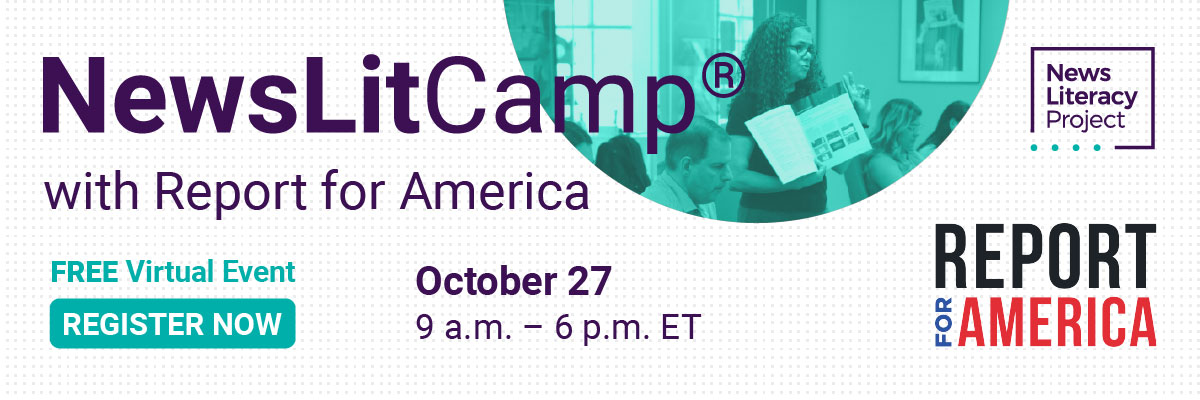

Friday, October. 27, 2023
9 A.M. – 6 P.M. EST
Ready to integrate news literacy topics into your classroom? Want to connect directly with journalists and learn more about how to help students navigate our increasingly complex information landscape?
Join us for this virtual, immersive day of professional learning built exclusively for educators, presented by the News Literacy Project in partnership with Report for America.
Registration is now open.
This NewsLitCamp® with Report for America is a free series of sessions led by journalists from Report for America as well as news literacy experts. It is designed to help educators address topics around news and media literacy in the classroom with confidence.
Topics will include:
- What it means to be “news literate.”
- Reporting on your own community: exploring ethics and objectivity in community journalism.
- Bringing journalists to the classroom with Report for America.
- Understanding news media bias.
In addition, a feature session at 1 p.m. ET will showcase our brand-new, on-demand NewsLitNation Professional Learning platform, which contains in-depth news and media literacy courses for educators. Join us to hear about this exciting benefit available exclusively for our NewsLitNation members and learn more about the accompanying News Literacy Educator Certificate!
The first session starts at 9 a.m. ET with additional sessions continuing throughout the day until 6 p.m ET. All session descriptions will be available on our Eventbrite online event page.
The event is open to all educators. No matter where you are or what grade level or subject area you teach, if you’re an educator interested in news literacy, we’d love to see you there. There is no cost to attend.
Can’t make the whole day but really interested in a few sessions? That’s OK — you are still welcome to attend the sessions that fit your schedule. Reserve your spot today!
All sessions will be recorded and made available to everyone who registers.
Questions? Email us at [email protected].
Journalists in the Classroom: Experiential News Literacy Learning
This free webinar for educators, presented by the News Literacy Project and hosted by edWeb, explores strategies for teaching students news literacy — particularly through leveraging Checkology®️ lessons and Newsroom to Classroom journalist visits.
Tuesday, August 29, 2023
5 p.m. ET/2 p.m. PT
News and media literacy is essential for people of all ages — especially students, who are growing up in the most complex information landscape in human history. It’s essential to teach students a deep understanding of bias as it relates to the news media so that they can accurately evaluate information and decide what to share with others. Journalists, professionals we depend on to gather, verify and present credible information, can be key to this effort.
During this edWeb webinar, you’ll discover best practices for teaching students news literacy by leveraging the News Literacy Project’s Checkology®️ lessons and Newsroom to Classroom visits to make news literacy tangible for learners. Newsroom to Classroom is a free program designed to demystify the practice of quality journalism by connecting students with vetted journalists or editors behind the headlines. Hear from Mindy Katz, an English teacher at Abington Senior High School in Pennsylvania who has used Newsroom to Classroom, as well as journalists Indira Lakshmanan, of The Associated Press, Shane Harris of the Washington Post and journalist and digital consultant Adriana Lacy, as they reflect on their experiences and share the impact of the program on students. Brittney Smith, senior manager of education partnerships at the News Literacy Project, will moderate.
Additionally, the presenters will highlight some of the resources (including the News Literacy Project’s “Understanding Bias” lesson on Checkology) that are available to support educators as we all work to make progress toward a future built on facts.
This webinar will be of interest to middle and high school teachers, librarians, and school and district leaders. There will be time for questions at the end of the presentation.
Adventures in News Literacy: Back to School with NLP Education and Checkology
Ready to embark on your news and media literacy journey this school year?
Learn how to use NLP Education and Checkology® to teach cross-disciplinary topics such as credible evidence, misinformation, skepticism toward the news and more.
This webinar is an introduction to popular features and recently added content on Checkology, the free, browser-based virtual classroom designed for grades 6-12 from the News Literacy Project, a nonpartisan national education nonprofit. In just one hour, you’ll learn about how to incorporate some of the latest Checkology lessons and activities in your curriculum — including the popular and recently updated “InfoZones” lesson and the engaging exercise “Is it Legit?”
This webinar is offered at three different dates and times; register for the session that best fits your schedule.
Participants will hear from the News Literacy Project’s Shaelynn Farnsworth, senior director of education partnership strategy, Erin Olson, senior manager of education partnerships, and Brittney Smith, senior manager of education partnerships.
These educator-experts will:
• Introduce the latest NLP Education and Checkology features and content, including resources on urgently needed news literacy topics, such as the “Levels of Scientific Evidence” trio (lesson, tutorial and infographic) and the “Harm and Distrust” and “Understanding Bias” lessons.
• Discuss the educator registration process and explain how you can quickly build Checkology courses and assign lessons.
***All attendees will have a chance to win a back-to-school educator care pack!***
(Can’t make any of the times but still interested? Register for a session anyway, and we’ll email you the recording.)
Back to School with Student Press Rights
This free webinar for educators, presented by the News Literacy Project, focuses on how educators can begin their school year teaching issues related to the First Amendment and student press rights.
Thursday, August 3, 2023
5 p.m. ET/2 p.m. PT
How well do students understand the First Amendment and their own student press rights? And how can educators engage their students in meaningful discussions about these topics?
Hear two perspectives from Adriana Chavira and David Doerr, veteran student journalism advisers and news literacy ambassadors. These educators will discuss how they begin their school year by teaching issues related to the First Amendment and student press rights, with the help of resources from the News Literacy Project.
Chavira, from California, and Doerr, from Texas, will also discuss how the U.S. Supreme Court’s 1988 Hazelwood ruling has eroded student press rights where there are no state laws defining when administrators can intervene in the student publication process, and how this affects topics that students cover in their publications.
(Can’t make it at this time but still interested? Register anyway, and we’ll email you the recording.)
Dive into News Literacy: Summer School Ideas
Join the News Literacy Project for a free educator webinar to discover how to teach news literacy skills that will serve your students throughout summer school and beyond.
Students often encounter an overwhelming amount of information in their day-to-day lives — especially online and often during times of unstructured exploration (such as academic breaks!). Summer school is an opportunity to teach them about the importance of media and news literacy. It’s also a time to supply your students with the critical thinking skills and habits of mind to help them tell fact from fiction.
In this free educator webinar, you’ll learn how to take the plunge into teaching with the Checkology®️ virtual classroom by incorporating it as a part of your summer school curriculum.
Participants will explore two interdisciplinary courses developed especially for summer school:
- “Summer School,” which focuses on building up students’ ability to differentiate between news, opinion and advertisements and on identifying misinformation.
- “STEM Summer,” which explores evaluating science- and data-based claims as well as analyzing science journalism.
The discussion will also cover additional resources and activities that can help develop skills such as fact-checking and evaluating sources. NLP’s educator experts Shaelynn Farnsworth, Brittney Smith and Erin Olson will lead the webinar.
(Can’t make the time? Register anyway and we’ll email you the recording afterward.)
For more on summer school resources from the News Literacy Project, visit the Dive into News Literacy resource hub.
Strategies for teaching about misinformation
Join the News Literacy Project for a free educator webinar to discover how to teach students about misinformation.
Wednesday, April 19
4:00 PM CT
Can your students tell fact from fiction and recognize credible evidence and sources? As AI feeds into the digital landscape, empower your students with essential media and news literacy skills. Join a free webinar to discover strategies for teaching about misinformation — what it is, how it functions, how to spot it and how to debunk it – and empowering students with critical media and news literacy skills.
You’ll hear from:
- Peter Adams, NLP’s senior vice president of research and design.
- Hannah Covington, NLP’s senior manager of education design.
- Members of NLP’s Education Partnership Strategy team.
This live, virtual discussion is free and open to educators.
Topics will include:
- The state of today’s digital landscape, including the challenges posed by generative artificial intelligence such as ChatGPT.
- Strategies for helping students determine the credibility of evidence and sources.
- Best practices for teaching about misinformation and conspiratorial thinking.
Participants will come away with a roadmap for getting started with teaching about misinformation, including how to use the “Misinfo 101” course offered on the News Literacy Project’s free Checkology virtual classroom (register for an educator account or sign in to access and assign the full course).
For more on “Misinfo 101,” visit the Misinfo 101 resource hub.
Harm and Distrust: Honoring Historical Truths in the Classroom
This free webinar for educators, presented by the News Literacy Project on edWeb.net, focuses on tackling difficult classroom conversations about race, equity and injustices.
Teaching historical truths can sometimes lead to difficult conversations in the classroom. It is essential for us to not only meet conversations about race, equity and injustices head-on, but to do so in a way that honors all voices. We need to create a safe environment for students to learn about the past and feel empowered to change the future based on facts.
During this expert panel as part of a free webinar on edWeb.net, participants will learn about:
- the historical failure of mainstream news organizations to serve all people equally.
- the legacies of distrust this has caused among specific groups in America — particularly Black Americans.
- recent efforts by news outlets to improve their coverage.
Hear from education professionals — Brittany Hogan, educational equity consultant, and K.C. Boyd, a news literacy ambassador and a library media specialist at Jefferson Middle School Academy in Washington, D.C. — about how they tackle these conversations in the classroom, and how they draw on their personal experiences to shed light on historical truths. Brittney Smith, NLP’s senior manager of education partnerships (East), will moderate.
In addition, the webinar will highlight some of the resources — including the News Literacy Project’s new “Harm & Distrust” lesson on Checkology® — that are available to support educators as we all work to make progress toward a more equitable and just society.
Your brain and misinformation: Why people believe lies and conspiracy theories
Join Peter Adams, NLP’s senior director of research and design, for a discussion that will explore how and why people fall for falsehoods.
Our brains do marvelous things, but they also make us vulnerable to falsehoods. Why? What leads people to fall for misinformation? And why do they share it with others? Is it all a battle between our emotions and our rational faculties? Between our ideological allies and adversaries? Or is there more to the story?
Join a panel of experts during the fourth annual National News Literacy Week to untangle the threads in our heads and hearts that can cause us to accept and spread falsehoods, even when we should know better.
Panelists include:
- Peter Adams, senior vice president of research and design at the News Literacy Project
- Dr. Sander van der Linden, professor of social psychology in society at the University of Cambridge, director of the Cambridge Social Decision-Making Lab and author of Foolproof: Why We Fall for Misinformation and How to Build Immunity
This live, virtual discussion is free and open to the public.
This event is presented in partnership with the American Psychological Association as part of National News Literacy Week.
National News Literacy Week, presented by the News Literacy Project in partnership with the E.W. Scripps Company, is Jan. 23-27, 2023. This annual event underscores the vital role of news literacy in a democracy and aims to inspire news consumers, educators and students to practice news literacy and to strengthen trust in news media by reinforcing the role of credible journalism.
Dr. Seema Yasmin was originally scheduled to participate but was unable to attend.
